- Home
- Ann M. Martin
Dawn Saves the Planet Page 9
Dawn Saves the Planet Read online
Page 9
“Why do you need celery?” Jamie Newton asked the boys.
“Because we want to show that polluted water also wrecks the trees,” David Michael explained.
“You’re going to show that with celery?” Jamie looked dubious.
“Sure,” David Michael replied. “You see, we get this glass of water and we put red food coloring in it.”
“That’s the pollution,” Linny explained.
“Then we stick the celery, which is supposed to represent a tree, in the water.”
“And then what?” Jamie asked.
“Then comes the really cool part,” Linny said. “You can actually watch the red water climb up the stalk of celery.”
“That sounds neat,” Jamie said to Claud. “I want to see.”
David Michael scowled. “Well, you can’t because he forgot the celery.”
I held up my hands. “Now let’s not start that again. If all you need is a stalk of celery, Stacey’s probably got a ton of it in her refrigerator. Linny, why don’t you run inside and ask Mrs. McGill to give you a stalk? And while you do that, David Michael can demonstrate the buried treasure experiment.”
The boys looked at each other for a second, and then smiled. “Okay.”
“How’s it going?” Claud whispered as David Michael began his speech.
“We’re off to a shaky start,” I replied. “But I think everything’s going to be just fine.”
“You’re getting a good crowd,” Claud pointed out. “Look, Mary Anne brought the twins.”
Marilyn and Carolyn, who are identical eight-year-olds, stood side by side in front of Charlotte and Becca’s shopping bag booth. Each was busily decorating her own canvas bag. Mary Anne stood a little distance away, talking to Mrs. Addison, who had brought her daughter Corrie to the fair.
After checking to make sure Nicky and Vanessa’s letter writing campaign was under control, I joined Mary Anne. She greeted me with a hug. “This fair is fantastic. You and Stacey are geniuses.”
“Mary Anne’s right,” Mrs. Addison added. “I’m overwhelmed at all the good information that’s being handed out here.”
Before I could reply, Marilyn and Carolyn joined us. “Look, Mary Anne,” Marilyn called, holding up her bag. “I decorated this myself.”
On her bag the words I Saved a Tree were written in pink and blue paint across one side. Marilyn had glued little sequins to the word “tree.” On the other side of the bag she had painted her name.
Carolyn rushed to Mary Anne, clutching her own bag, which was painted green and yellow. “Did you know that paper bags are made from trees? And one fifteen-year-old tree makes seven hundred bags?”
“Wow!” Mary Anne said. “That’s a lot of bags.”
Marilyn shook her head. “But it’s really not. Because a grocery store can go through that many bags in one hour.”
Carolyn held up her bag. “That’s why it’s important to use canvas bags.”
Mrs. Addison, who was admiring the bags, asked, “Where did you learn all that?”
Marilyn and Carolyn turned and pointed. “At the shopping bag booth. Melody and Hannie told us.”
“That’s amazing,” Mrs. Addison exclaimed.
I squeezed Mary Anne’s hand. “Isn’t it? I’m so proud of the kids. They’re all doing so well.”
“You should be proud,” a familiar voice said. “I’ve been watching a demonstration on how to make tree feeders, and I can’t wait to go home and make one myself.”
I spun around and found myself face to face with my science teacher. “Mrs. Gonzalez!” I gasped. “I’m glad you could come.”
Mrs. Gonzalez smiled. “I wouldn’t have missed this for the world.”
“Dawn!” Bill Korman shouted from his booth. “Dawn, come quick!”
“Oops,” I said. “It looks like trouble’s brewing at the wild animal booth. Excuse me.”
“If you don’t mind,” Mrs. Gonzalez said, “I’ll go with you.”
My heart sank. I expected to find something terribly wrong at the boys’ booth.
But when Mrs. Gonzalez and I got there, Bill and Buddy were grinning from ear to ear.
“What’s the matter, Bill?” I asked.
“We just sold ten bird houses,” Buddy cried with glee.
“What’s wrong with that?” I asked.
“Nothing,” Bill replied, looked slightly confused. “We thought it was great news.”
“Yeah,” Buddy added. “Do you know how much money we’ve made?”
Stacey, the math whiz, came up beside me and answered, “Twenty dollars. Great work, guys!”
Bill pointed to the line of kids forming in front of their booth. “At this rate, we’ll make a hundred dollars by the time the fair’s over.”
“That’s a lot of money,” Mrs. Gonzalez said, obviously impressed. “What do you plan to do with it?”
“We’re going to give it to an environmental organization,” Stacey explained. “But we haven’t chosen one yet.”
Suddenly I got an idea. “I know which one I’d like to give it to,” I said to Stacey. “But I want to talk it over with you first.”
Stacey smiled at me. “Whichever one you choose is fine with me.”
“Are you sure?” I asked, “I mean, I don’t want to be pushy or anything.”
Stacey giggled. “You’re not being pushy. Who do you want to give it to?”
I dug my toe in the ground as I talked. “I’ve done a lot of thinking. You know, the world has a lot of wonderful ecological organizations like The Environmental Defense Fund and Greenpeace, but one of the lessons I’ve learned over the past six weeks is that helping the planet begins at home. So …” I took a deep breath. “I move we donate the proceeds from our Green Fair to Stoneybrook Middle School’s recycling project.”
Stacey smiled. “That’s a great idea. I second the motion.”
“All in favor?” I asked. Then we giggled as we said, “Aye.”
Stacey turned to Mrs. Gonzalez. “Okay, it’s official. The money from our Green Fair will go to the recycling project.”
“That,” said Mrs. Gonzalez, “is the best idea I’ve heard today.”
“Thirty pages!” Stacey gasped as the copier machine at the print shop churned out our report for Mrs. Gonzalez. “Can you believe it? This is practically a book!”
As the pages came out of the copier, I separated them into two neat piles. “It would probably have been longer if we had included the extra research we did on rain forests.”
We were making two copies of our report because Stacey and I were in different classes. We had also decided to include a one page essay on what we had learned individually from participating in the project.
“I hope Mrs. Gonzalez is impressed by this,” Stacey said as she handed me a green cover. I’d chosen the color to represent the earth and the green trees. Stacey’s cover was blue, which she said represented the oceans and clean drinking water.
“She better be impressed,” I replied. “Just typing this took a whole week.”
After Stacey and I had attached the covers to our reports, we went over to her house to celebrate. Her mom had bought us a bottle of sparkling cider just for the occasion.
Stacey popped the cork and poured the cider into two of her mother’s expensive Waterford crystal glasses. We took our drinks into the living room and then I proposed a toast.
“Here’s to you,” I declared, holding up my glass. “For putting up with bossy old me for six weeks.”
Stacey raised her glass. “And here’s to you, for thinking up the best project in the whole school.”
We clinked glasses and Stacey added, “I hope we get an A.”
“Of course we’ll get an A,” I said, after taking a sip of my cider. “We deserve it.”
But when I turned in my copy of the report the next morning, I didn’t feel nearly as confident as I had the night before.
“What if she says my report’s too long?” I whispered to Amelia after I plac
ed my report on Mrs. Gonzalez’s desk.
“Who knows? It might be too short,” Elizabeth replied. “Did you see Pete Black’s report? It’s so huge, it must weight five pounds.”
“Maybe my essay is all wrong,” I mumbled to myself as I hurried back to my desk.
I spent the next seven days worrying about that report. I know that sounds silly, especially after all the work Stacey and I had done. It was my essay that worried me the most. Stacey told me she had written her essay on how she planned to stay involved in the ecology movement in the future. I didn’t even mention the word ecology or pollution in mine.
The following Monday, Mrs. Gonzalez appeared in science class with a stack of papers in her arms. Everyone knew what they were — the reports. But she didn’t hand them out right away. She made us suffer first. Then during the last ten minutes of class she passed them back to us.
My hands were shaking so much I could barely open mine. All around me I heard excited cries and disappointed sighs, as people saw their grades. But still I couldn’t bring myself to open the cover. I finally got up the nerve when the bell rang. I squeezed my eyes shut and, quick, flipped open the cover. I couldn’t believe what I saw.
Written in bright red ink was the letter A. Next to it was this note from Mrs. Gonzalez:
“Your project was superb and this report is excellent. Carefully thought out, well-executed, and a delight to read. Especially the essay. Please see me after class — I’d like to talk to you.”
When I looked up from my paper, I discovered I was the only student left in the classroom. Mrs. Gonzalez was standing in front of her desk.
“Well?” she asked. “Are you happy?”
“Am I happy?” I repeated. “I could jump for joy!”
“Go ahead,” she chuckled. “No one’s watching, and I won’t tell.”
(In case you’re wondering I did not jump, but I did do a lot of squealing with happiness — later on, when I told the rest of the BSC at lunch. And that was because of what Mrs. Gonzalez said to me next.)
“Dawn,” she began, taking a seat, “I know you were disappointed when the school chose me to head the recycling center.”
I started to protest, but Mrs. Gonzalez said, “It’s okay. I would have been upset, too. After all, it was your idea.”
I looked down at my hands. “Well, maybe I was a little disappointed.”
“I have a proposal that I’d like to put in front of the student body. Mr. Kingbridge thinks it’s a good idea. All we need is for the students to say yes.”
“What is it?”
“I’d like you to co-chair the recycling program with me.”
I couldn’t believe my ears. “Really?”
Mrs. Gonzalez nodded. “That means we split everything — good and bad jobs alike — fifty-fifty. It would also mean that you’d have to give up a lot of Saturdays so you could supervise the project.”
“That’s fine with me,” I said. “When do we start?”
“As soon as the students vote on it.”
“Oh.” My shoulders drooped. “I don’t think they’ll want me, not after the way I’ve behaved.”
“I’ll admit you were a little overexuberant at first,” Mrs. Gonzalez said carefully.
“My friends said I was obnoxious,” I blurted out.
That made her laugh. “Well, maybe just a little bit,” she admitted. “But it was for a good cause. Besides, you’ve changed.”
“Do you really think so?” I said hopefully.
“I can see it and so can the students. So what do you say?”
“Well … sure,” I replied. “And I’ll keep my fingers crossed that they’ll want me.”
“Oh, they’ll want you,” Mrs. Gonzalez assured me, patting my hand. “I haven’t a single doubt about it.”
Well, after getting an A on my report, plus the offer to co-chair the project, I was flying. At lunchtime I raced all the way to the cafeteria. Stacey was waiting to greet me.
“We did it!” she cried.
I wrapped my arms around her and squealed, “We got an A!”
“Of course, you got an A,” Claud said matter-of-factly from behind us.
“Absolutely!” Kristy set her hamburger and fries on the table and slid into a chair. “Your project was pure genius!”
I waited until Mary Anne and Logan joined the table to make my big announcement. “Mrs. Gonzalez asked me to co-chair the recycling project.”
“Yes!” Mary Anne squealed.
“All right!” Kristy said, giving me a high five.
“Don’t get too excited,” I warned them. “The school has to vote on it first, and you know what happened last time.”
“That’s all in the past,” Claud replied. “This time I’m sure they’ll elect you.”
“I hope you’re right,” I said. “Mrs. Gonzalez said that after reading my essay, she’d decided I’d changed for the better.”
“What did you say in your essay?” Stacey asked, raising a piece of celery to her mouth. “I never read yours.”
“Well, I titled it Saving the Planet — You Can’t Do It Alone. Then I described how working on the project turned me into a bossy jerk. I said how I got so self-righteous and obnoxious that no one, not even my friends in the Baby-sitters Club, wanted to help me.” I smiled at Stacey and added, “I also mentioned what a saint you were for putting up with me.”
“Oh, Dawn! That’s not true.”
“Your paper sounds more like True Confessions than an essay,” Claudia said. “Did Mrs. Gonzalez like it?”
“She loved it. She especially liked the ending where I wrote —” I pulled my report out of my book bag and, flipping to the last page, read out loud, “I’ve discovered that in order to make big changes in the world we have to begin at home — within ourselves. Now that I’ve begun to clean up my own act, I think I’ll be better equipped to help others clean up the world.”
“Gee, Dawn,” Mary Anne said after a few moments of silence, “that was really great.”
“It’s the truth,” I said with a shrug. “I mean, look at the BSC. It’s a success because we work together.” I looked around the table and realized how proud I was to have such good friends. “And when you work together, you can do almost anything. Even save a planet.”
* * *
Dear Reader,
In Dawn Saves the Planet, Dawn’s friends get mad at her because they think Dawn is going overboard with her efforts to make everyone environmentally aware. But the truth is, it doesn’t take much to make a difference. Here are some quick and easy things you can do to help save the planet:
• Turn off lights, the radio, or the television when you leave a room.
• Reuse items as often as you can, and then recycle them, if possible.
• Don’t leave water running in the sink.
• If your community has a recycling program, save and recycle newspapers, cans, and bottles. (I recycle dozens of cat food cans a week.)
• Buy refillable products whenever possible, such as cleaners and lotions.
• Use reusable products whenever possible — cloth instead of paper napkins and towels, china instead of paper plates, etc.
These things may seem simple, and they are. Little things really do make a difference.
Happy reading,
* * *
The author gratefully acknowledges
Jahnna Beecham and Malcolm Hillgartner
for their help in
preparing this manuscript.
About the Author
ANN MATTHEWS MARTIN was born on August 12, 1955. She grew up in Princeton, New Jersey, with her parents and her younger sister, Jane.
There are currently over 176 million copies of The Baby-sitters Club in print. (If you stacked all of these books up, the pile would be 21,245 miles high.) In addition to The Baby-sitters Club, Ann is the author of two other series, Main Street and Family Tree. Her novels include Belle Teal, A Corner of the Universe (a Newbery Honor book), Here Toda
y, A Dog’s Life, On Christmas Eve, Everything for a Dog, Ten Rules for Living with My Sister, and Ten Good and Bad Things About My Life (So Far). She is also the coauthor, with Laura Godwin, of the Doll People series.
Ann lives in upstate New York with her dog and her cats.
Copyright © 1992 by Ann M. Martin.
Cover art by Hodges Soileau
All rights reserved. Published by Scholastic Inc. SCHOLASTIC, THE BABY-SITTERS CLUB, and associated logos are trademarks and/or registered trademarks of Scholastic Inc.
First edition, September 1992
All rights reserved under International and Pan-American Copyright Conventions. No part of this publication may be reproduced, transmitted, downloaded, decompiled, reverse engineered, or stored in or introduced into any information storage and retrieval system, in any form or by any means, whether electronic or mechanical, now known or hereafter invented, without the express written permission of the publisher. For information regarding permission, write to Scholastic Inc., Attention: Permissions Department, 557 Broadway, New York, NY 10012.
e-ISBN 978-0-545-69052-2
Ann M. Martin, Dawn Saves the Planet
Thank you for reading books on Archive.BookFrom.Net
Share this book with friends

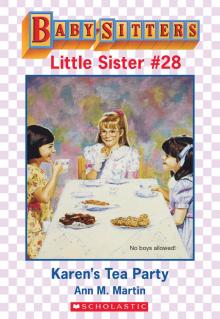 Karen's Tea Party
Karen's Tea Party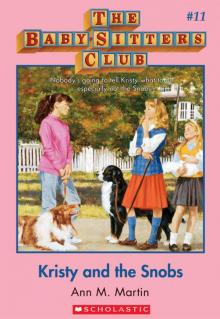 Kristy and the Snobs
Kristy and the Snobs Best Kept Secret
Best Kept Secret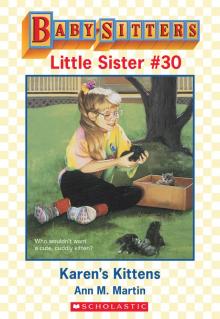 Karen's Kittens
Karen's Kittens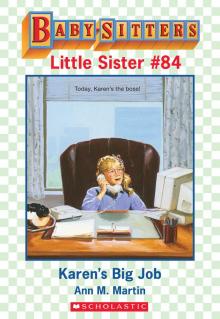 Karen's Big Job
Karen's Big Job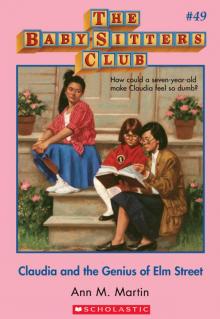 Claudia and the Genius of Elm Street
Claudia and the Genius of Elm Street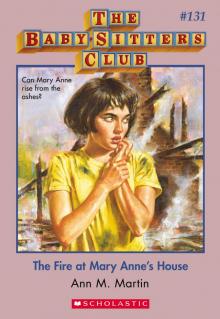 The Fire at Mary Anne's House
The Fire at Mary Anne's House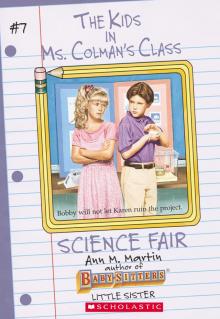 Science Fair
Science Fair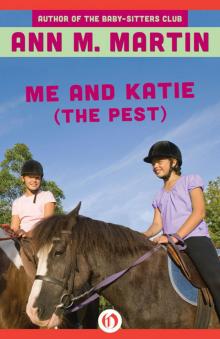 Me and Katie (The Pest)
Me and Katie (The Pest)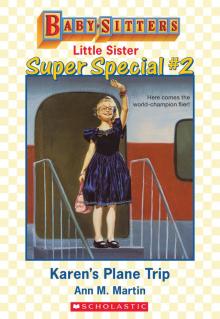 Karen's Plane Trip
Karen's Plane Trip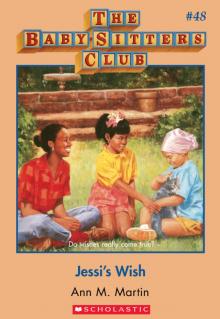 Jessi's Wish
Jessi's Wish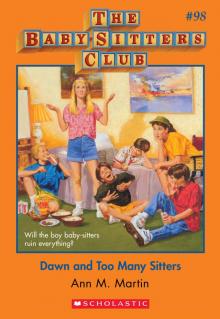 Dawn and Too Many Sitters
Dawn and Too Many Sitters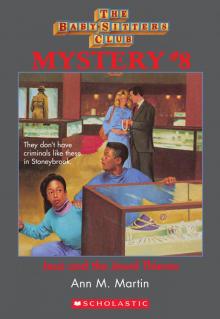 Jessi and the Jewel Thieves
Jessi and the Jewel Thieves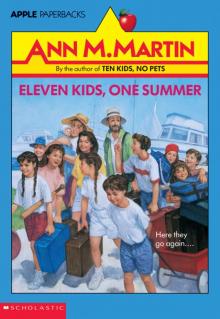 Eleven Kids, One Summer
Eleven Kids, One Summer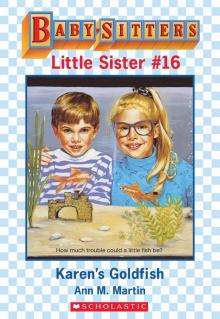 Karen's Goldfish
Karen's Goldfish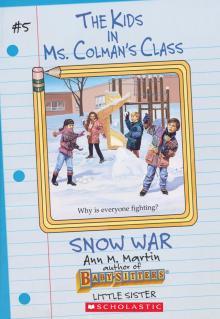 Snow War
Snow War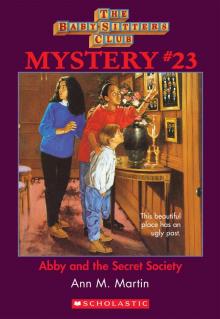 Abby and the Secret Society
Abby and the Secret Society Keeping Secrets
Keeping Secrets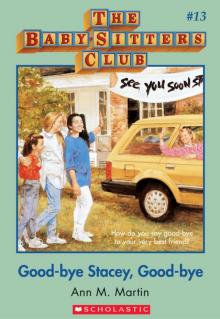 Good-Bye Stacey, Good-Bye
Good-Bye Stacey, Good-Bye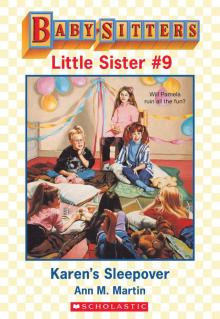 Karen's Sleepover
Karen's Sleepover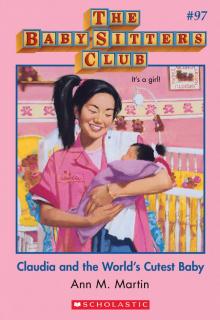 Claudia and the World's Cutest Baby
Claudia and the World's Cutest Baby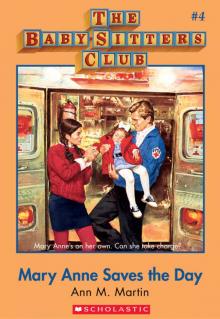 Mary Anne Saves the Day
Mary Anne Saves the Day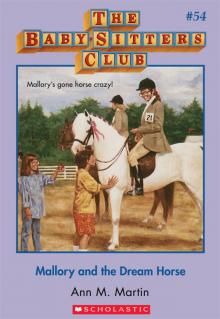 Mallory and the Dream Horse
Mallory and the Dream Horse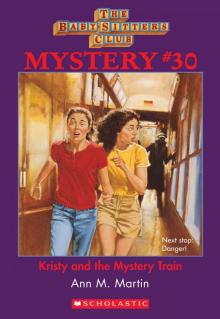 Kristy and the Mystery Train
Kristy and the Mystery Train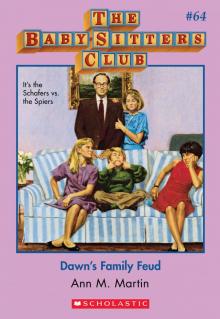 Dawn's Family Feud
Dawn's Family Feud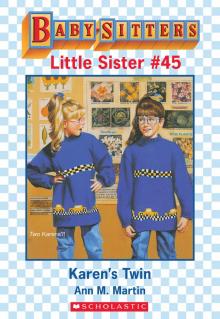 Karen's Twin
Karen's Twin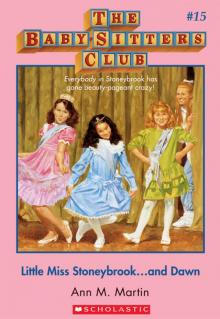 Little Miss Stoneybrook... And Dawn
Little Miss Stoneybrook... And Dawn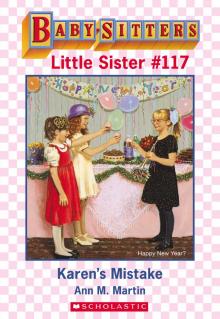 Karen's Mistake
Karen's Mistake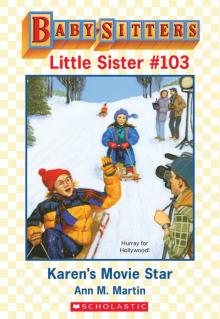 Karen's Movie Star
Karen's Movie Star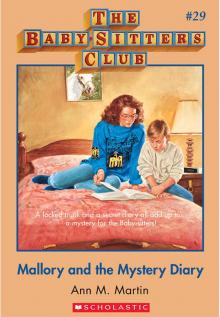 Mallory and the Mystery Diary
Mallory and the Mystery Diary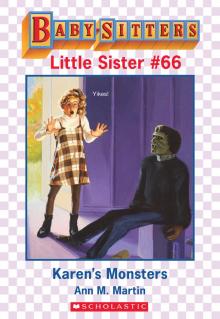 Karen's Monsters
Karen's Monsters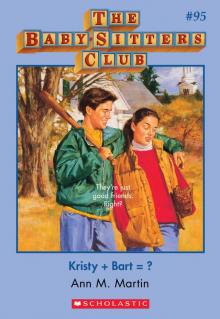 Kristy + Bart = ?
Kristy + Bart = ?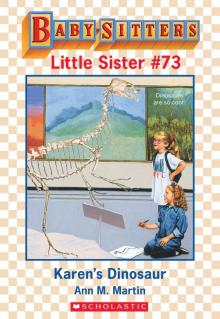 Karen's Dinosaur
Karen's Dinosaur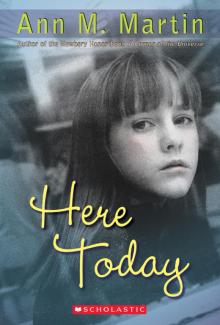 Here Today
Here Today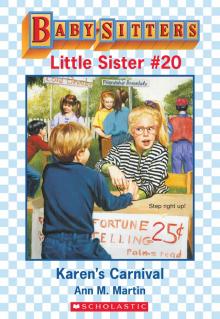 Karen's Carnival
Karen's Carnival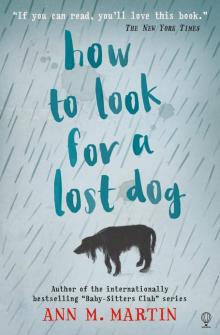 How to Look for a Lost Dog
How to Look for a Lost Dog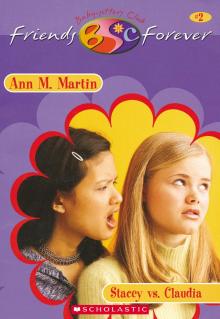 Stacey vs. Claudia
Stacey vs. Claudia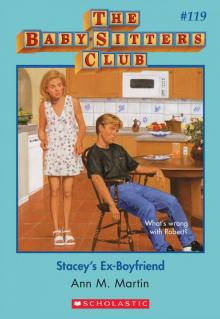 Stacey's Ex-Boyfriend
Stacey's Ex-Boyfriend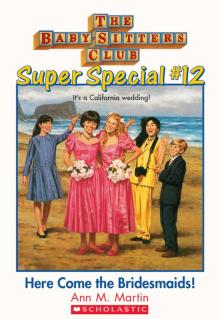 Here Come the Bridesmaids!
Here Come the Bridesmaids! Graduation Day
Graduation Day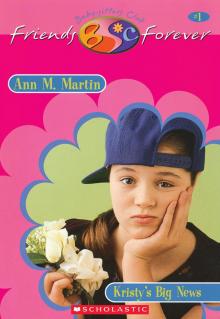 Kristy's Big News
Kristy's Big News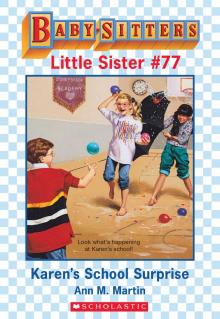 Karen's School Surprise
Karen's School Surprise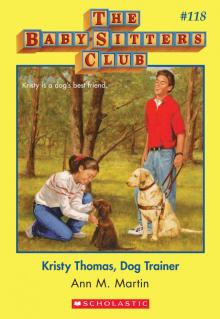 Kristy Thomas, Dog Trainer
Kristy Thomas, Dog Trainer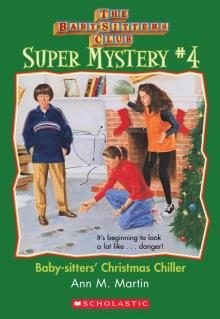 Baby-Sitters' Christmas Chiller
Baby-Sitters' Christmas Chiller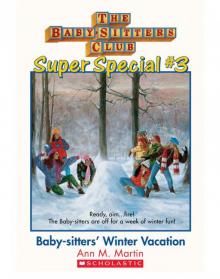 Baby-Sitters' Winter Vacation
Baby-Sitters' Winter Vacation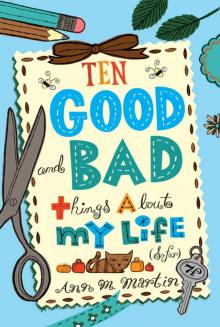 Ten Good and Bad Things About My Life
Ten Good and Bad Things About My Life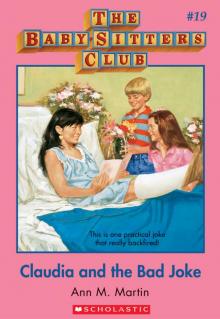 Claudia and the Bad Joke
Claudia and the Bad Joke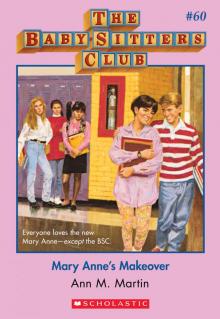 Mary Anne's Makeover
Mary Anne's Makeover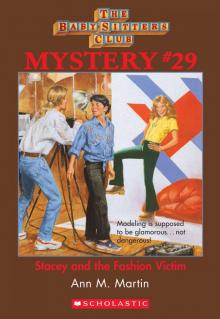 Stacey and the Fashion Victim
Stacey and the Fashion Victim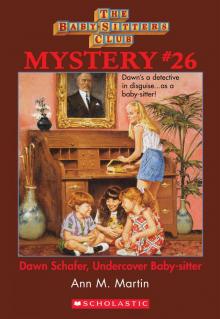 Dawn Schafer, Undercover Baby-Sitter
Dawn Schafer, Undercover Baby-Sitter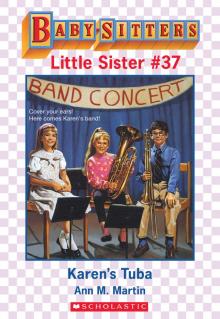 Karen's Tuba
Karen's Tuba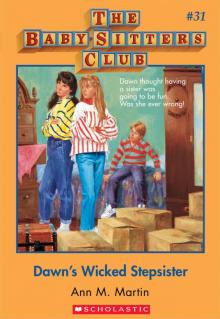 Dawn's Wicked Stepsister
Dawn's Wicked Stepsister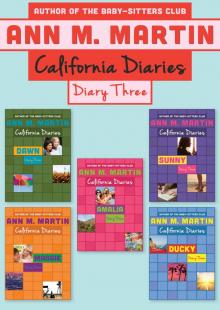 Diary Three: Dawn, Sunny, Maggie, Amalia, and Ducky
Diary Three: Dawn, Sunny, Maggie, Amalia, and Ducky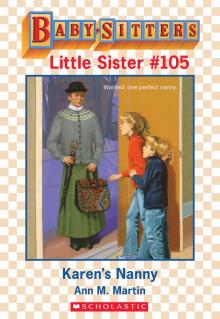 Karen's Nanny
Karen's Nanny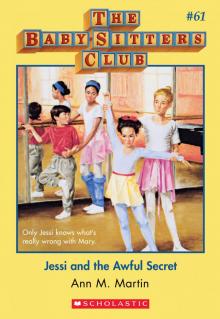 Jessi and the Awful Secret
Jessi and the Awful Secret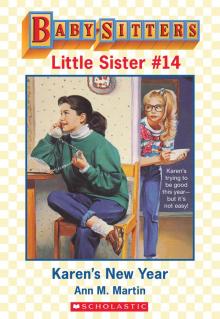 Karen's New Year
Karen's New Year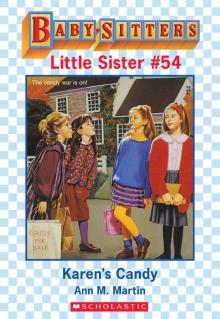 Karen's Candy
Karen's Candy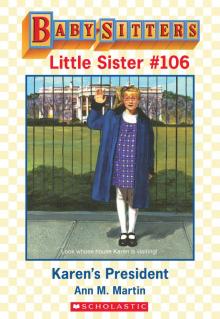 Karen's President
Karen's President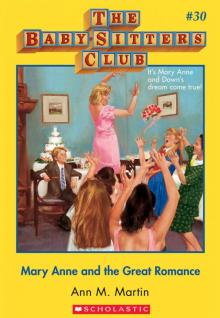 Mary Anne and the Great Romance
Mary Anne and the Great Romance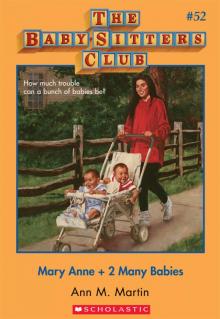 Mary Anne + 2 Many Babies
Mary Anne + 2 Many Babies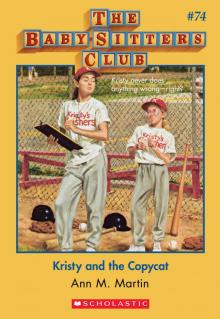 Kristy and the Copycat
Kristy and the Copycat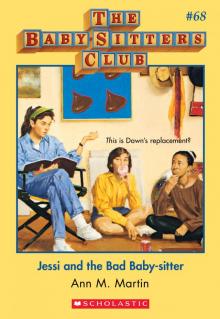 Jessi and the Bad Baby-Sitter
Jessi and the Bad Baby-Sitter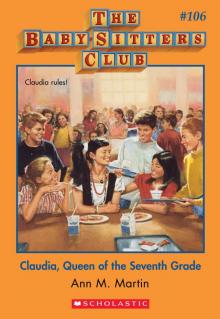 Claudia, Queen of the Seventh Grade
Claudia, Queen of the Seventh Grade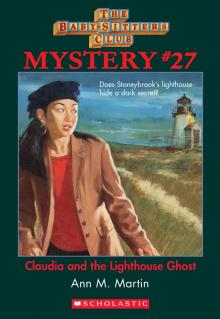 Claudia and the Lighthouse Ghost
Claudia and the Lighthouse Ghost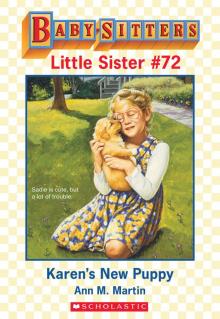 Karen's New Puppy
Karen's New Puppy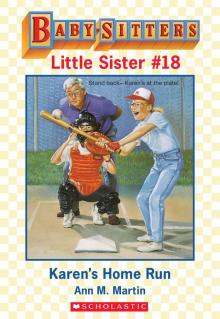 Karen's Home Run
Karen's Home Run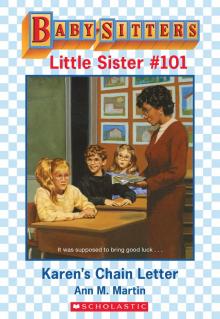 Karen's Chain Letter
Karen's Chain Letter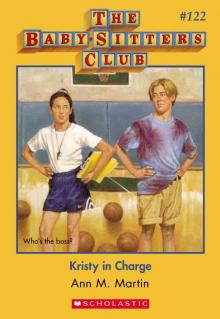 Kristy in Charge
Kristy in Charge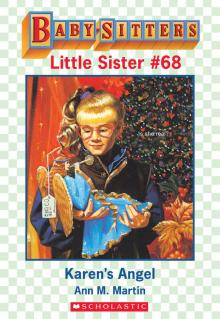 Karen's Angel
Karen's Angel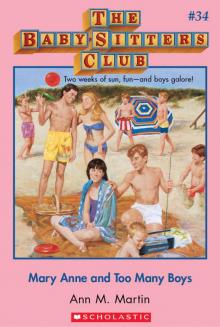 Mary Anne and Too Many Boys
Mary Anne and Too Many Boys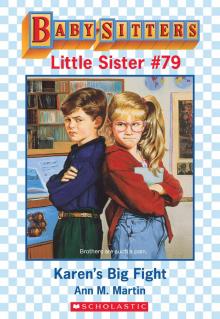 Karen's Big Fight
Karen's Big Fight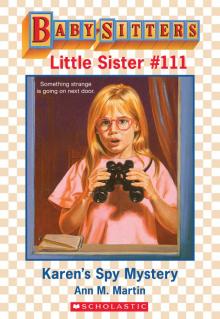 Karen's Spy Mystery
Karen's Spy Mystery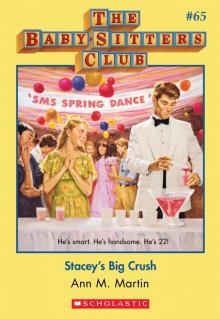 Stacey's Big Crush
Stacey's Big Crush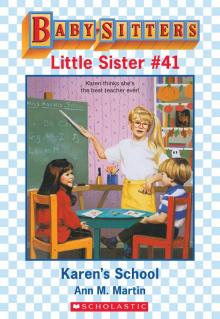 Karen's School
Karen's School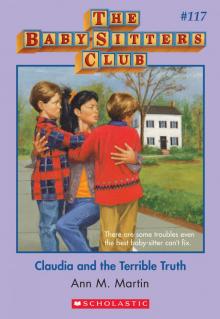 Claudia and the Terrible Truth
Claudia and the Terrible Truth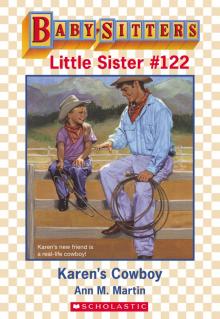 Karen's Cowboy
Karen's Cowboy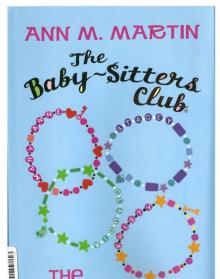 The Summer Before
The Summer Before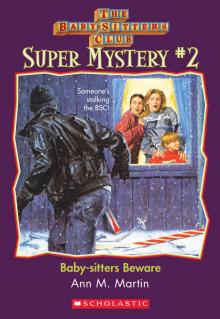 Beware, Dawn!
Beware, Dawn!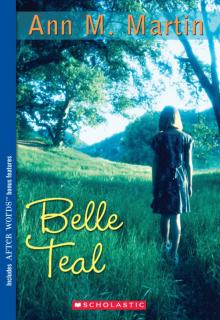 Belle Teale
Belle Teale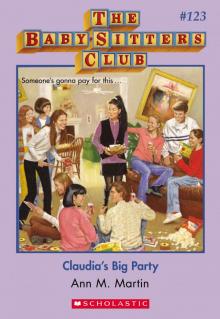 Claudia's Big Party
Claudia's Big Party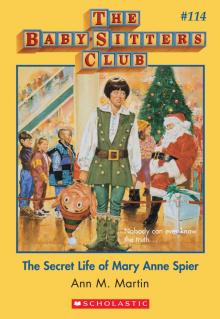 The Secret Life of Mary Anne Spier
The Secret Life of Mary Anne Spier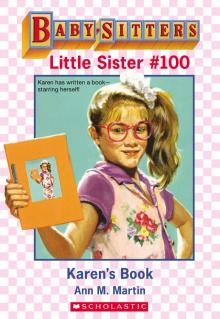 Karen's Book
Karen's Book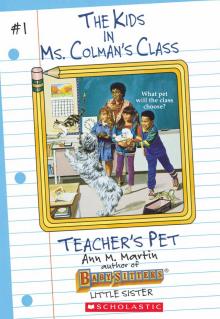 Teacher's Pet
Teacher's Pet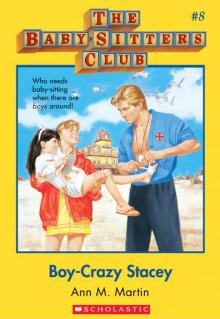 Boy-Crazy Stacey
Boy-Crazy Stacey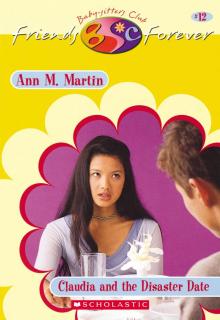 Claudia and the Disaster Date
Claudia and the Disaster Date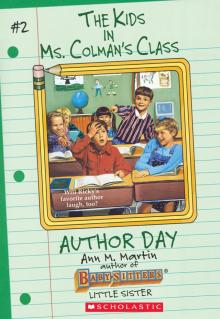 Author Day
Author Day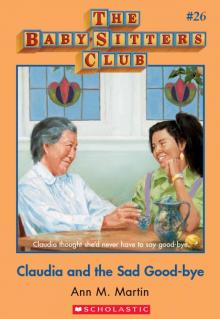 Claudia and the Sad Good-Bye
Claudia and the Sad Good-Bye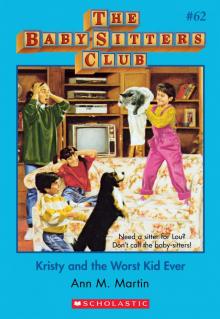 Kristy and the Worst Kid Ever
Kristy and the Worst Kid Ever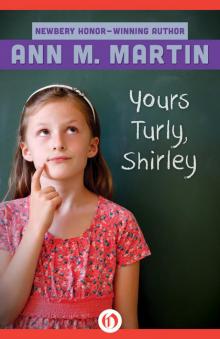 Yours Turly, Shirley
Yours Turly, Shirley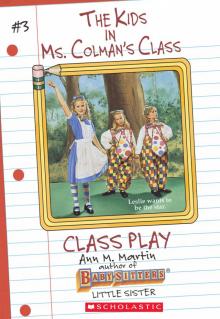 Class Play
Class Play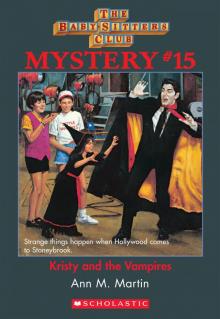 Kristy and the Vampires
Kristy and the Vampires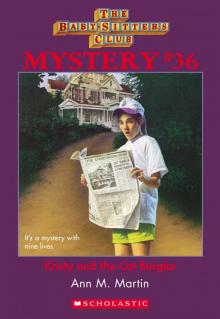 Kristy and the Cat Burglar
Kristy and the Cat Burglar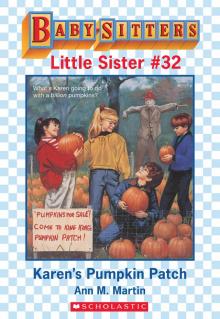 Karen's Pumpkin Patch
Karen's Pumpkin Patch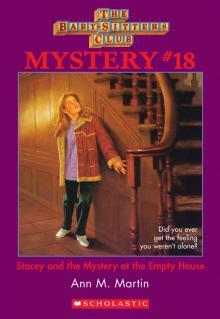 Stacey and the Mystery at the Empty House
Stacey and the Mystery at the Empty House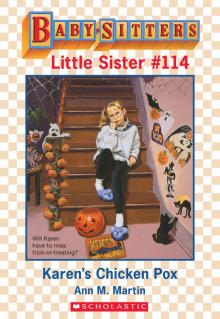 Karen's Chicken Pox
Karen's Chicken Pox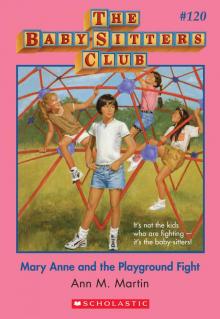 Mary Anne and the Playground Fight
Mary Anne and the Playground Fight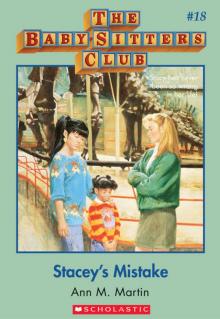 Stacey's Mistake
Stacey's Mistake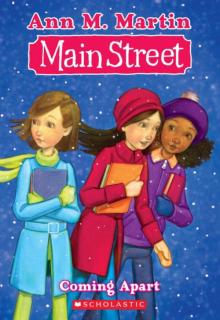 Coming Apart
Coming Apart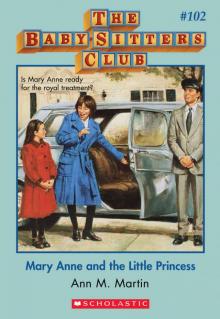 Mary Anne and the Little Princess
Mary Anne and the Little Princess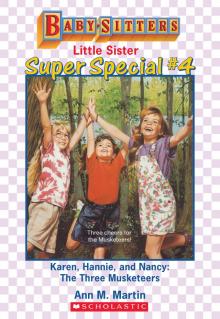 Karen, Hannie and Nancy: The Three Musketeers
Karen, Hannie and Nancy: The Three Musketeers 'Tis the Season
'Tis the Season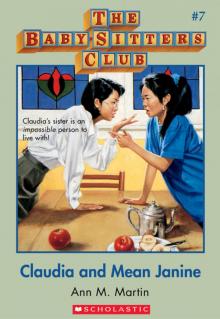 Claudia and Mean Janine
Claudia and Mean Janine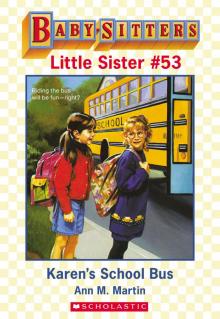 Karen's School Bus
Karen's School Bus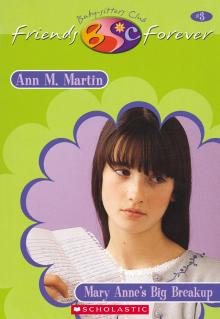 Mary Anne's Big Breakup
Mary Anne's Big Breakup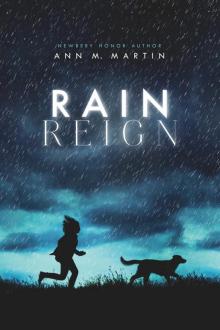 Rain Reign
Rain Reign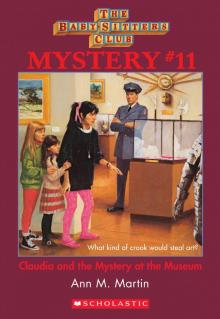 Claudia and the Mystery at the Museum
Claudia and the Mystery at the Museum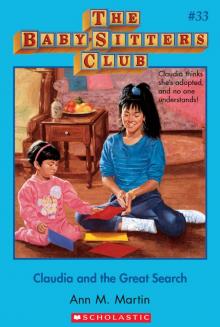 Claudia and the Great Search
Claudia and the Great Search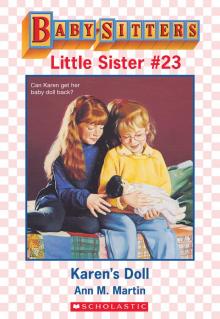 Karen's Doll
Karen's Doll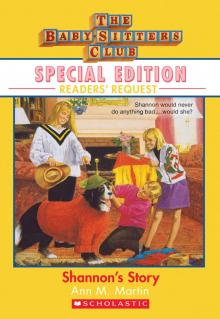 Shannon's Story
Shannon's Story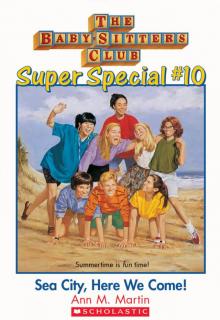 Sea City, Here We Come!
Sea City, Here We Come!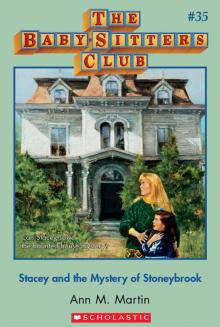 Stacey and the Mystery of Stoneybrook
Stacey and the Mystery of Stoneybrook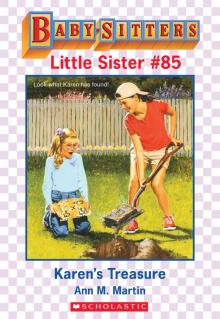 Karen's Treasure
Karen's Treasure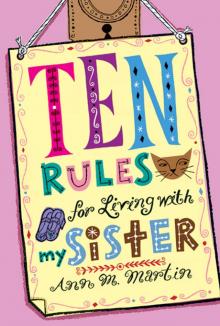 Ten Rules for Living With My Sister
Ten Rules for Living With My Sister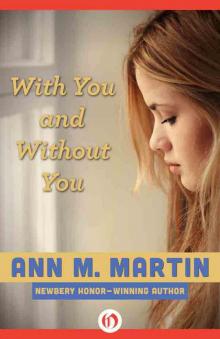 With You and Without You
With You and Without You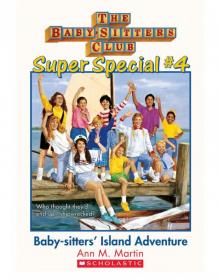 Baby-Sitters' Island Adventure
Baby-Sitters' Island Adventure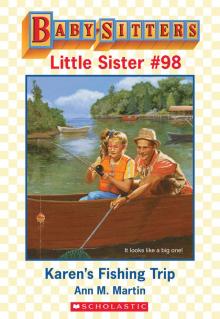 Karen's Fishing Trip
Karen's Fishing Trip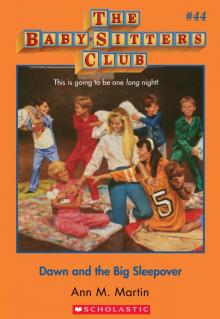 Dawn and the Big Sleepover
Dawn and the Big Sleepover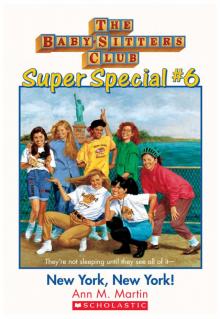 New York, New York!
New York, New York!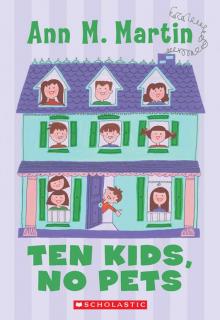 Ten Kids, No Pets
Ten Kids, No Pets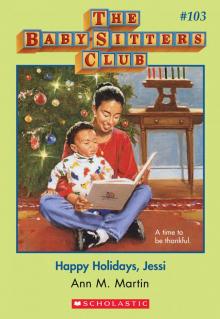 Happy Holidays, Jessi
Happy Holidays, Jessi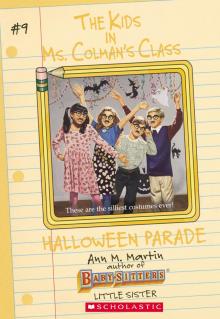 Halloween Parade
Halloween Parade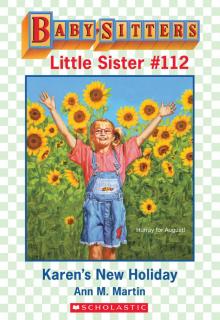 Karen's New Holiday
Karen's New Holiday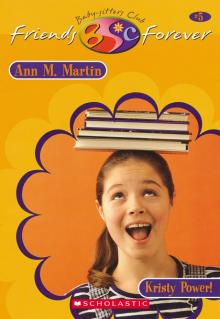 Kristy Power!
Kristy Power!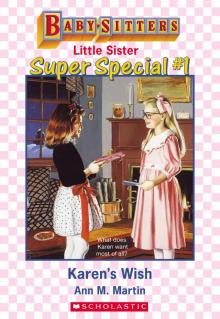 Karen's Wish
Karen's Wish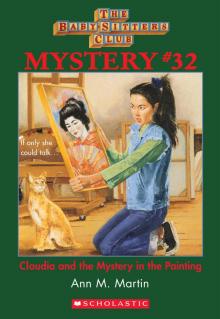 Claudia and the Mystery in the Painting
Claudia and the Mystery in the Painting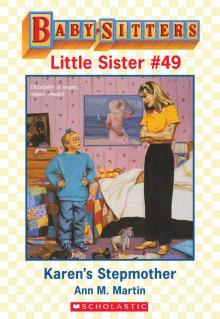 Karen's Stepmother
Karen's Stepmother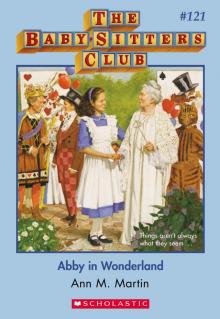 Abby in Wonderland
Abby in Wonderland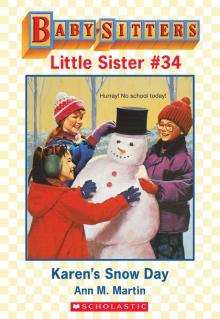 Karen's Snow Day
Karen's Snow Day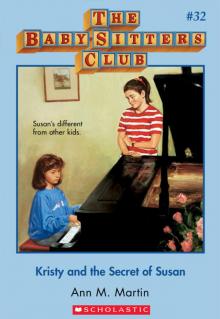 Kristy and the Secret of Susan
Kristy and the Secret of Susan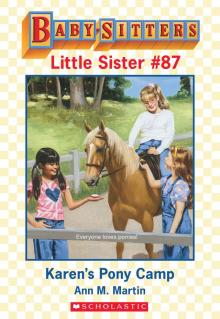 Karen's Pony Camp
Karen's Pony Camp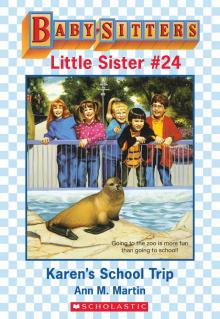 Karen's School Trip
Karen's School Trip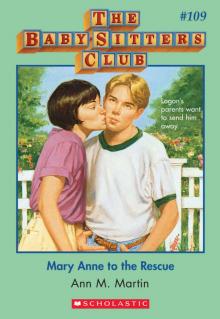 Mary Anne to the Rescue
Mary Anne to the Rescue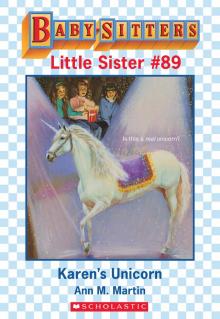 Karen's Unicorn
Karen's Unicorn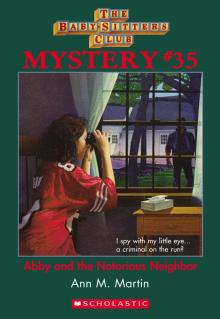 Abby and the Notorious Neighbor
Abby and the Notorious Neighbor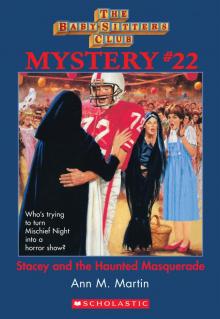 Stacey and the Haunted Masquerade
Stacey and the Haunted Masquerade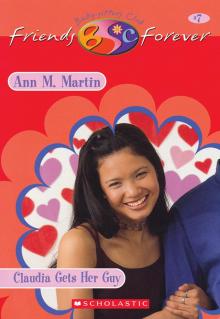 Claudia Gets Her Guy
Claudia Gets Her Guy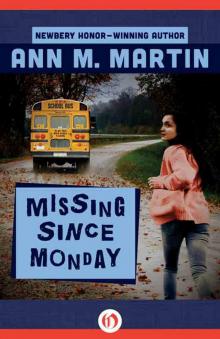 Missing Since Monday
Missing Since Monday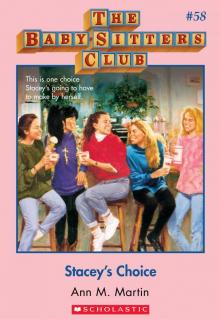 Stacey's Choice
Stacey's Choice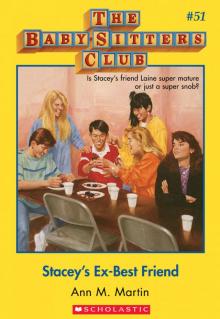 Stacey's Ex-Best Friend
Stacey's Ex-Best Friend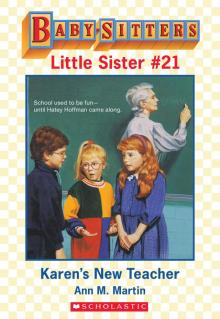 Karen's New Teacher
Karen's New Teacher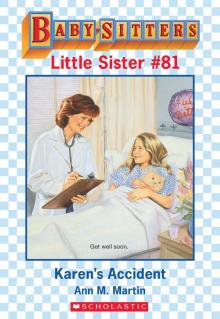 Karen's Accident
Karen's Accident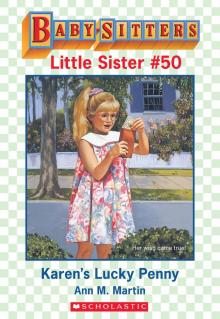 Karen's Lucky Penny
Karen's Lucky Penny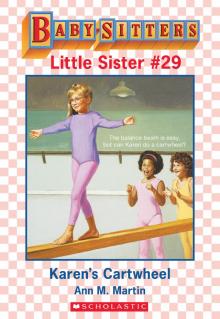 Karen's Cartwheel
Karen's Cartwheel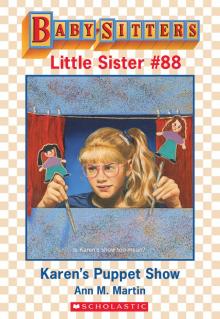 Karen's Puppet Show
Karen's Puppet Show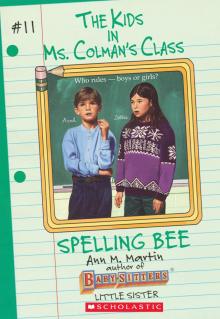 Spelling Bee
Spelling Bee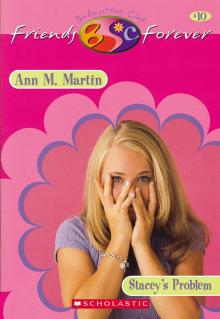 Stacey's Problem
Stacey's Problem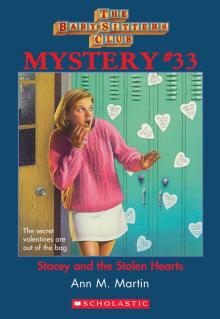 Stacey and the Stolen Hearts
Stacey and the Stolen Hearts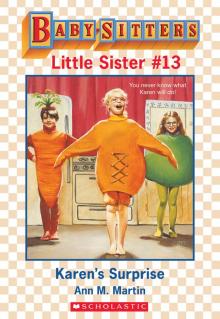 Karen's Surprise
Karen's Surprise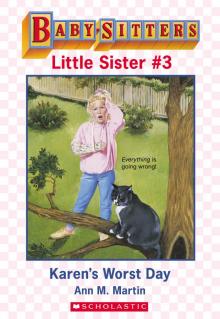 Karen's Worst Day
Karen's Worst Day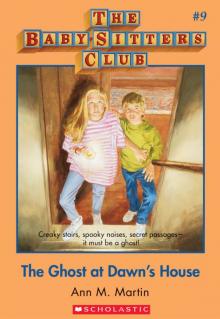 The Ghost at Dawn's House
The Ghost at Dawn's House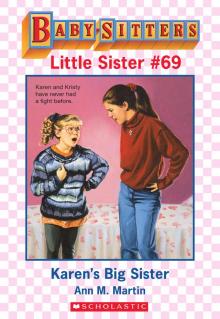 Karen's Big Sister
Karen's Big Sister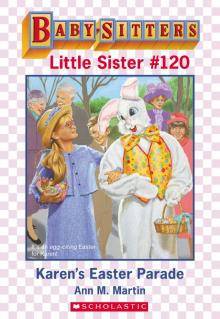 Karen's Easter Parade
Karen's Easter Parade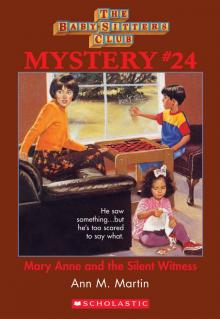 Mary Anne and the Silent Witness
Mary Anne and the Silent Witness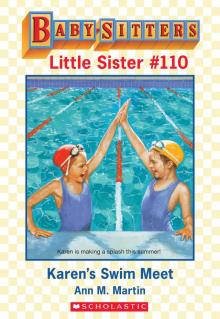 Karen's Swim Meet
Karen's Swim Meet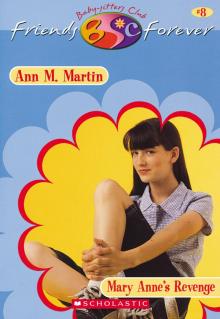 Mary Anne's Revenge
Mary Anne's Revenge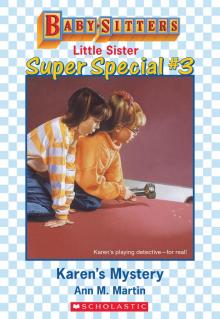 Karen's Mystery
Karen's Mystery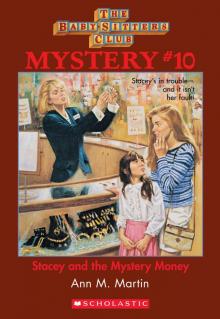 Stacey and the Mystery Money
Stacey and the Mystery Money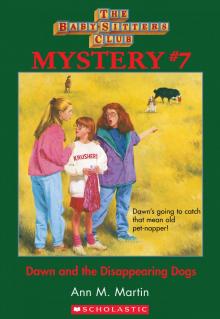 Dawn and the Disappearing Dogs
Dawn and the Disappearing Dogs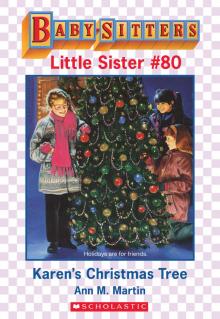 Karen's Christmas Tree
Karen's Christmas Tree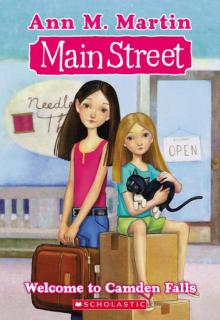 Welcome to Camden Falls
Welcome to Camden Falls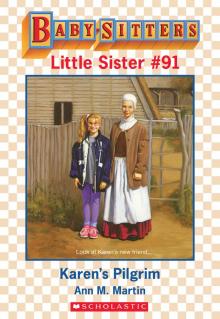 Karen's Pilgrim
Karen's Pilgrim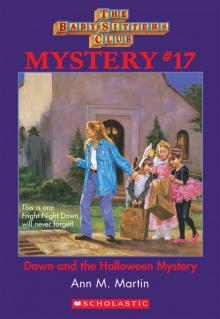 Dawn and the Halloween Mystery
Dawn and the Halloween Mystery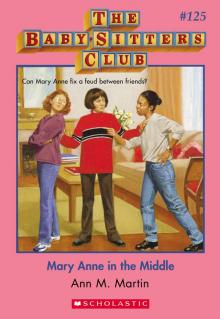 Mary Anne in the Middle
Mary Anne in the Middle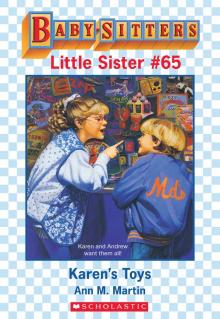 Karen's Toys
Karen's Toys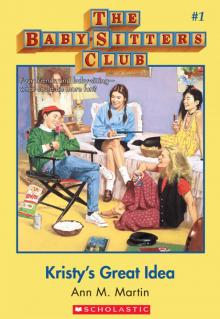 Kristy's Great Idea
Kristy's Great Idea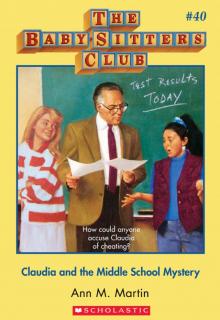 Claudia and the Middle School Mystery
Claudia and the Middle School Mystery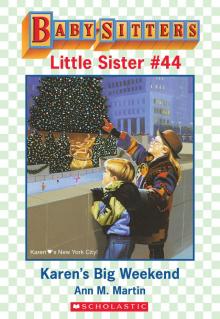 Karen's Big Weekend
Karen's Big Weekend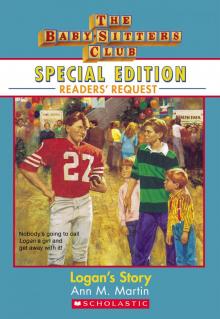 Logan's Story
Logan's Story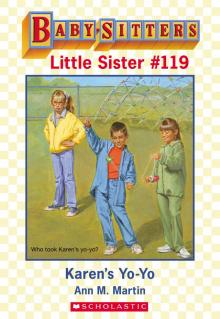 Karen's Yo-Yo
Karen's Yo-Yo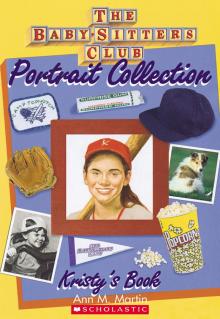 Kristy's Book
Kristy's Book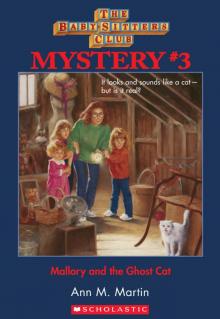 Mallory and the Ghost Cat
Mallory and the Ghost Cat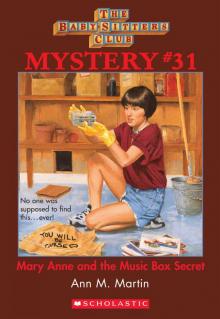 Mary Anne and the Music
Mary Anne and the Music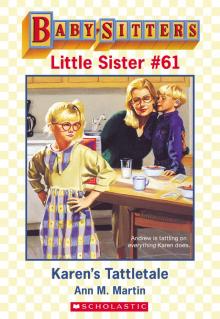 Karen's Tattletale
Karen's Tattletale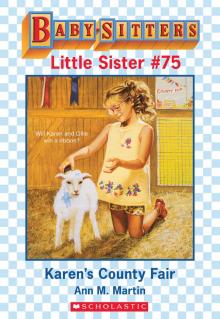 Karen's County Fair
Karen's County Fair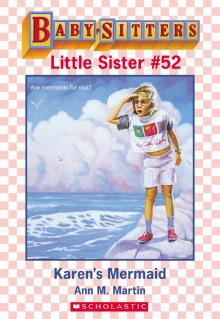 Karen's Mermaid
Karen's Mermaid Snowbound
Snowbound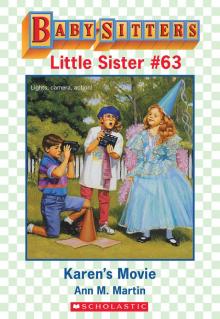 Karen's Movie
Karen's Movie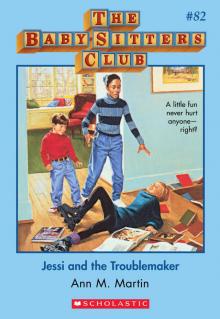 Jessi and the Troublemaker
Jessi and the Troublemaker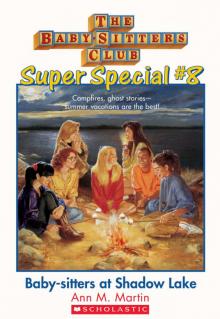 Baby-Sitters at Shadow Lake
Baby-Sitters at Shadow Lake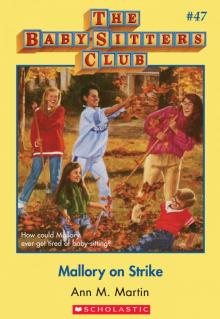 Mallory on Strike
Mallory on Strike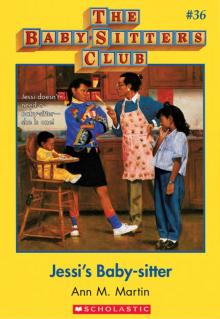 Jessi's Baby-Sitter
Jessi's Baby-Sitter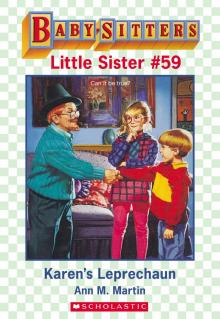 Karen's Leprechaun
Karen's Leprechaun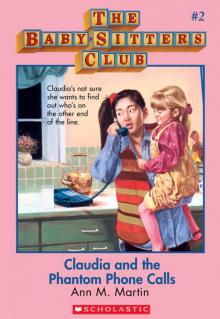 Claudia and the Phantom Phone Calls
Claudia and the Phantom Phone Calls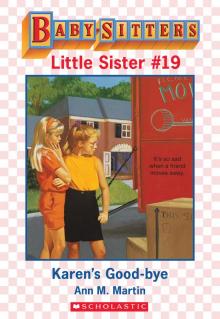 Karen's Good-Bye
Karen's Good-Bye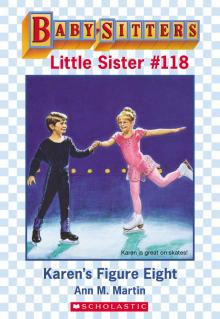 Karen's Figure Eight
Karen's Figure Eight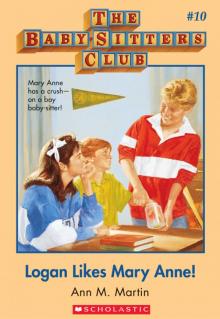 Logan Likes Mary Anne!
Logan Likes Mary Anne!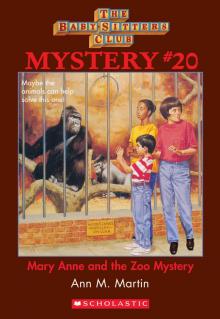 Mary Anne and the Zoo Mystery
Mary Anne and the Zoo Mystery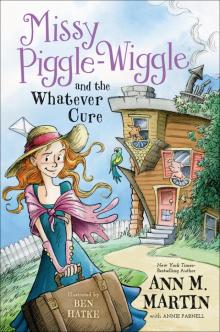 Missy Piggle-Wiggle and the Whatever Cure
Missy Piggle-Wiggle and the Whatever Cure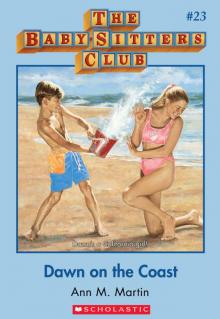 Dawn on the Coast
Dawn on the Coast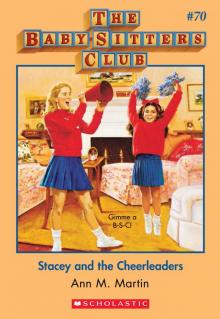 Stacey and the Cheerleaders
Stacey and the Cheerleaders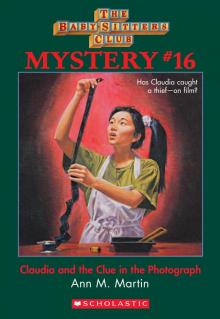 Claudia and the Clue in the Photograph
Claudia and the Clue in the Photograph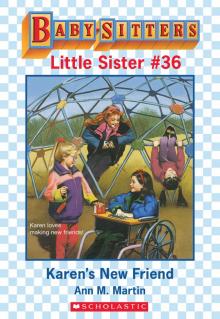 Karen's New Friend
Karen's New Friend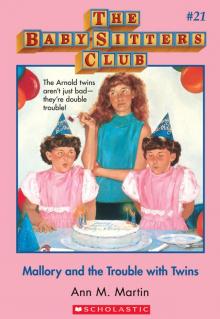 Mallory and the Trouble With Twins
Mallory and the Trouble With Twins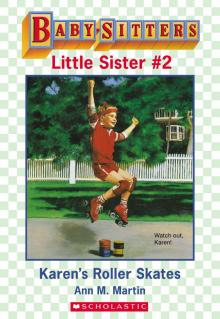 Karen's Roller Skates
Karen's Roller Skates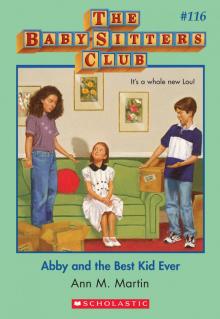 Abby and the Best Kid Ever
Abby and the Best Kid Ever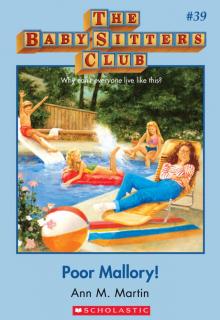 Poor Mallory!
Poor Mallory!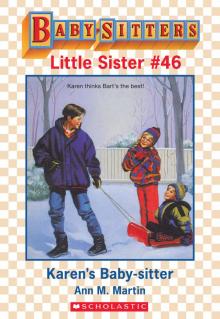 Karen's Witch
Karen's Witch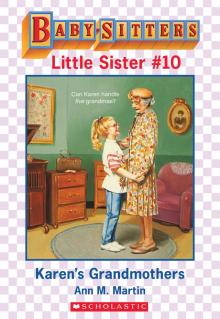 Karen's Grandmothers
Karen's Grandmothers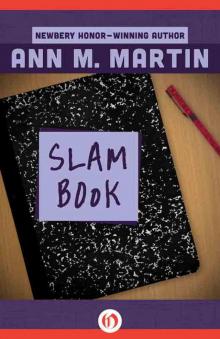 Slam Book
Slam Book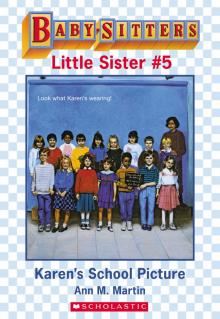 Karen's School Picture
Karen's School Picture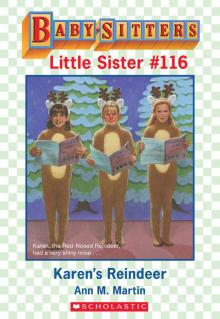 Karen's Reindeer
Karen's Reindeer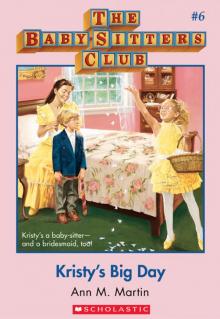 Kristy's Big Day
Kristy's Big Day The Long Way Home
The Long Way Home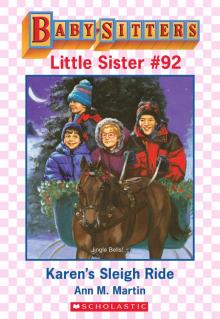 Karen's Sleigh Ride
Karen's Sleigh Ride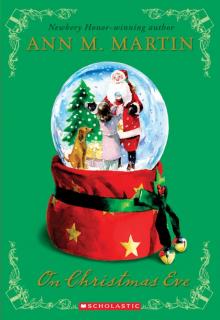 On Christmas Eve
On Christmas Eve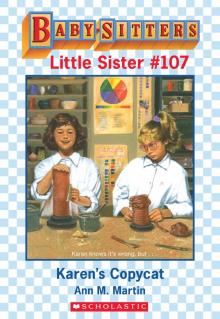 Karen's Copycat
Karen's Copycat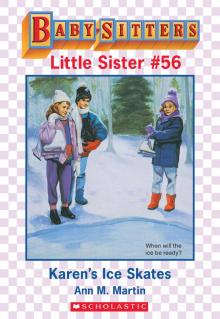 Karen's Ice Skates
Karen's Ice Skates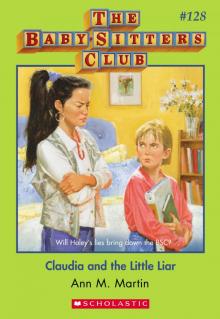 Claudia and the Little Liar
Claudia and the Little Liar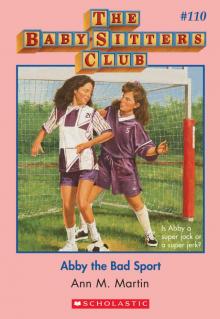 Abby the Bad Sport
Abby the Bad Sport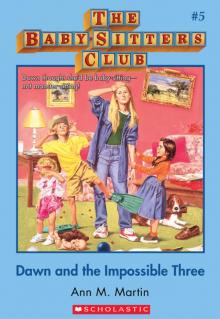 The Baby-Sitters Club #5: Dawn and the Impossible Three
The Baby-Sitters Club #5: Dawn and the Impossible Three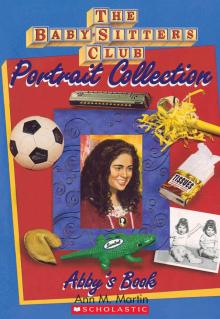 Abby's Book
Abby's Book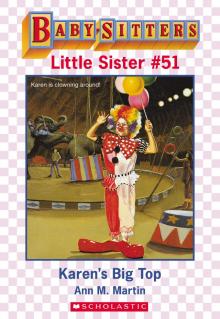 Karen's Big Top
Karen's Big Top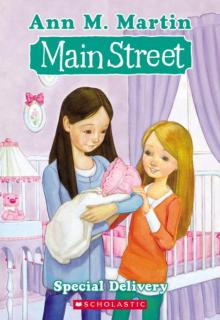 Main Street #8: Special Delivery
Main Street #8: Special Delivery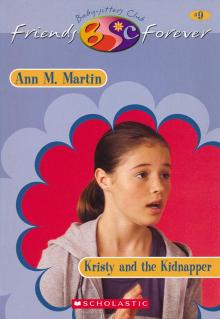 Kristy and the Kidnapper
Kristy and the Kidnapper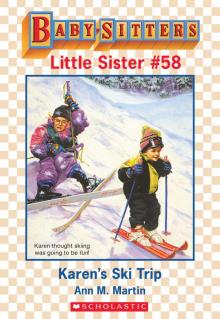 Karen's Ski Trip
Karen's Ski Trip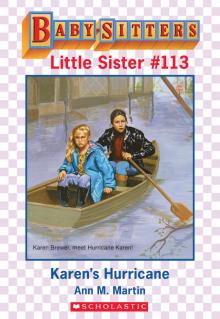 Karen's Hurricane
Karen's Hurricane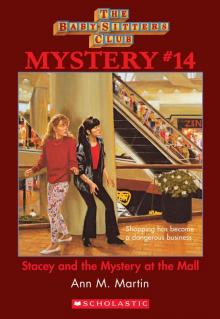 Stacey and the Mystery at the Mall
Stacey and the Mystery at the Mall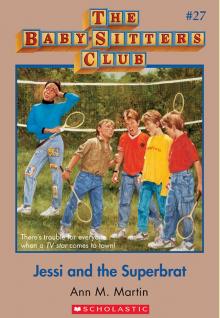 Jessi and the Superbrat
Jessi and the Superbrat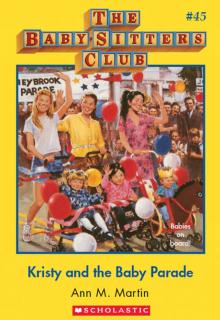 Kristy and the Baby Parade
Kristy and the Baby Parade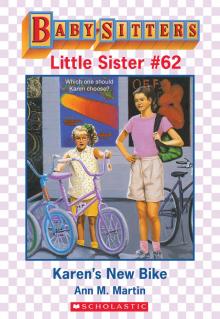 Karen's New Bike
Karen's New Bike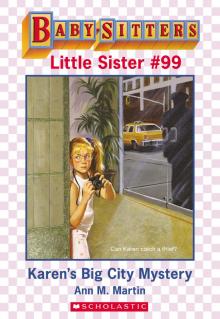 Karen's Big City Mystery
Karen's Big City Mystery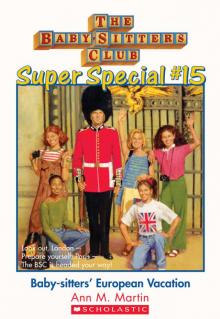 Baby-Sitters' European Vacation
Baby-Sitters' European Vacation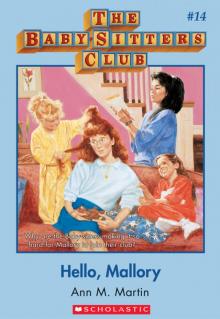 Hello, Mallory
Hello, Mallory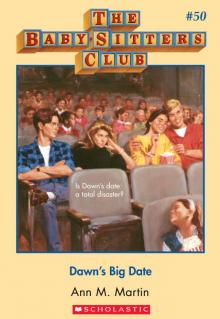 Dawn's Big Date
Dawn's Big Date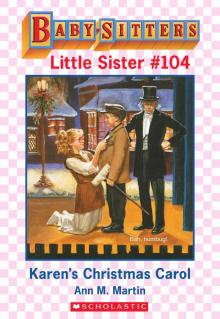 Karen's Christmas Carol
Karen's Christmas Carol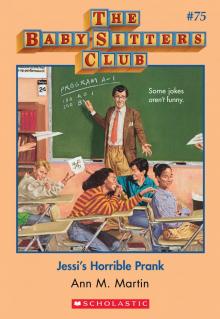 Jessi's Horrible Prank
Jessi's Horrible Prank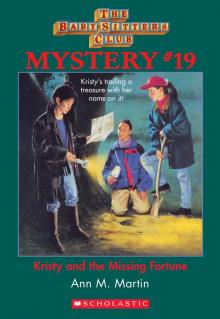 Kristy and the Missing Fortune
Kristy and the Missing Fortune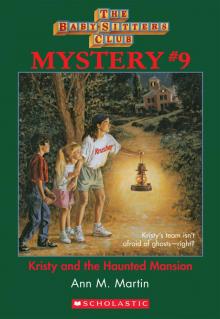 Kristy and the Haunted Mansion
Kristy and the Haunted Mansion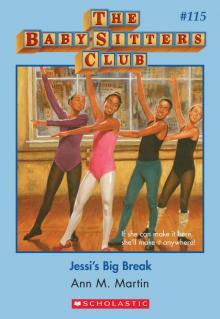 Jessi's Big Break
Jessi's Big Break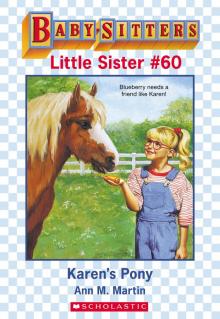 Karen's Pony
Karen's Pony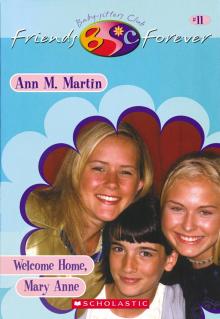 Welcome Home, Mary Anne
Welcome Home, Mary Anne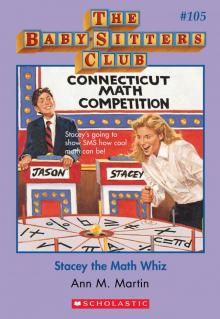 Stacey the Math Whiz
Stacey the Math Whiz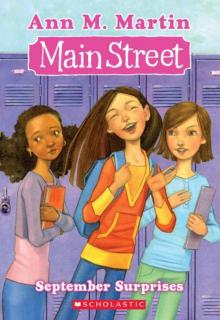 September Surprises
September Surprises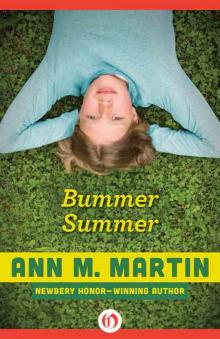 Bummer Summer
Bummer Summer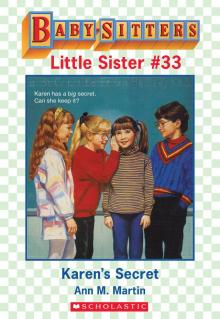 Karen's Secret
Karen's Secret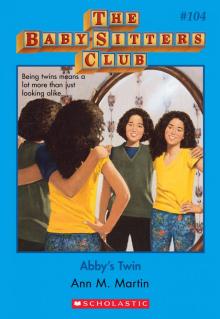 Abby's Twin
Abby's Twin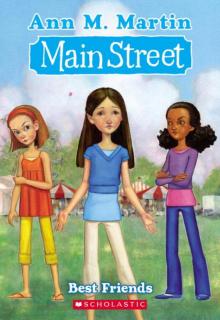 Main Street #4: Best Friends
Main Street #4: Best Friends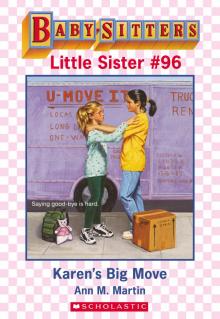 Karen's Big Move
Karen's Big Move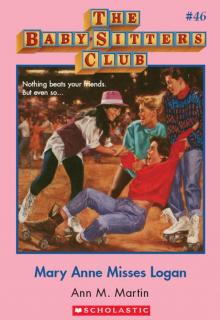 Mary Anne Misses Logan
Mary Anne Misses Logan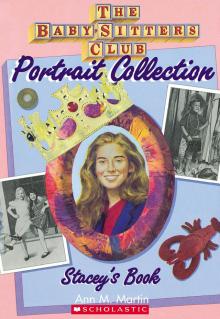 Stacey's Book
Stacey's Book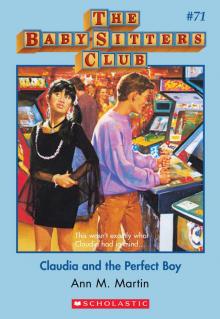 Claudia and the Perfect Boy
Claudia and the Perfect Boy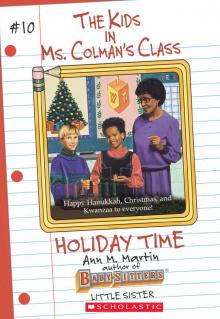 Holiday Time
Holiday Time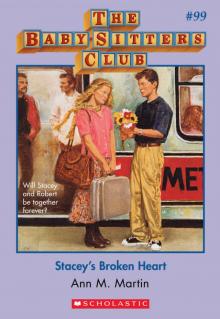 Stacey's Broken Heart
Stacey's Broken Heart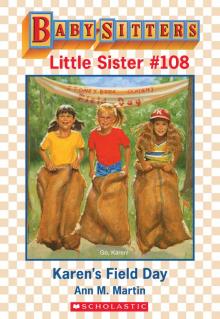 Karen's Field Day
Karen's Field Day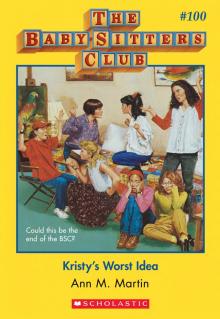 Kristy's Worst Idea
Kristy's Worst Idea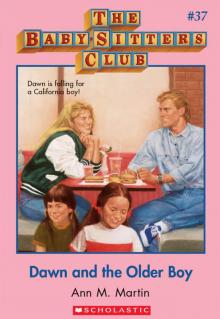 Dawn and the Older Boy
Dawn and the Older Boy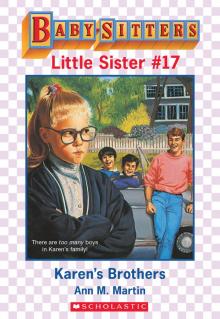 Karen's Brothers
Karen's Brothers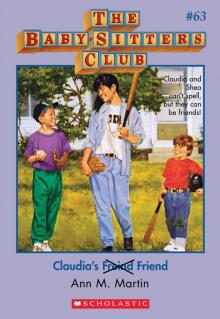 Claudia's Friend
Claudia's Friend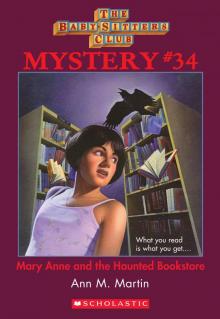 Mary Anne and the Haunted Bookstore
Mary Anne and the Haunted Bookstore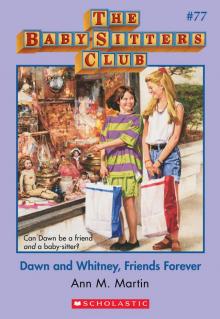 Dawn and Whitney, Friends Forever
Dawn and Whitney, Friends Forever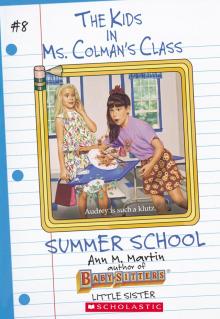 Summer School
Summer School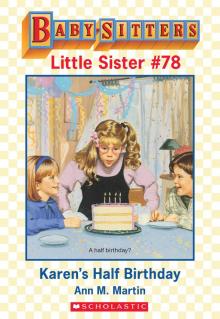 Karen's Birthday
Karen's Birthday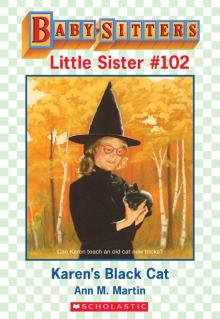 Karen's Black Cat
Karen's Black Cat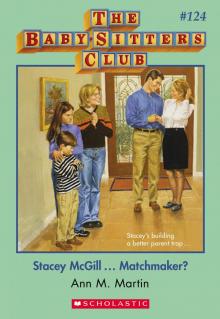 Stacey McGill... Matchmaker?
Stacey McGill... Matchmaker?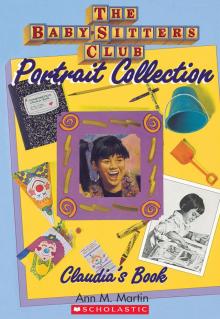 Claudia's Book
Claudia's Book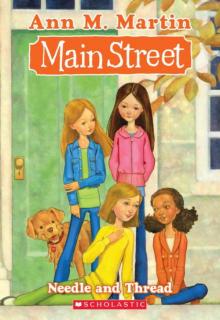 Main Street #2: Needle and Thread
Main Street #2: Needle and Thread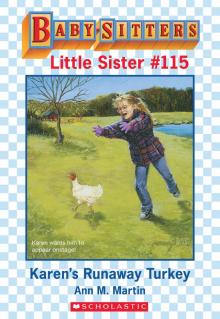 Karen's Runaway Turkey
Karen's Runaway Turkey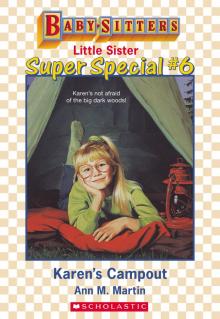 Karen's Campout
Karen's Campout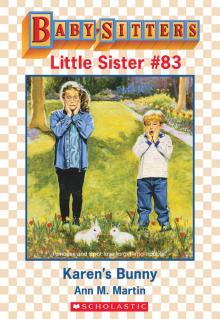 Karen's Bunny
Karen's Bunny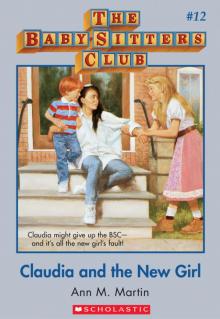 Claudia and the New Girl
Claudia and the New Girl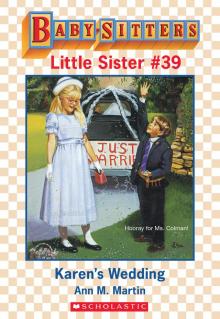 Karen's Wedding
Karen's Wedding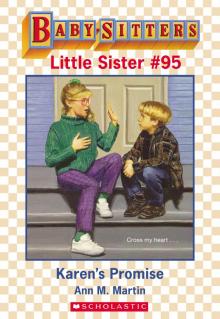 Karen's Promise
Karen's Promise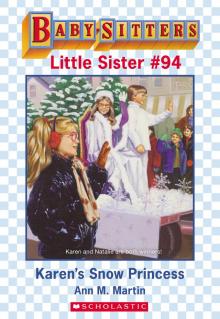 Karen's Snow Princess
Karen's Snow Princess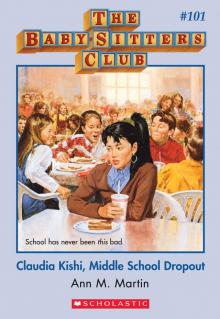 Claudia Kishi, Middle School Dropout
Claudia Kishi, Middle School Dropout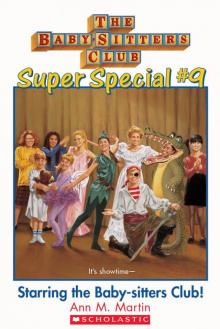 Starring the Baby-Sitters Club!
Starring the Baby-Sitters Club!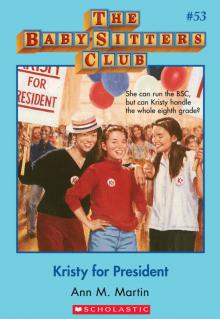 Kristy for President
Kristy for President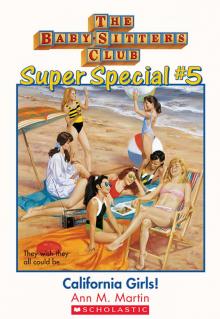 California Girls!
California Girls!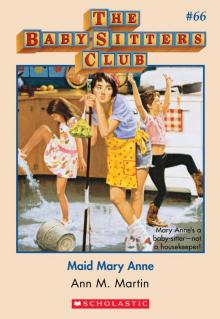 Maid Mary Anne
Maid Mary Anne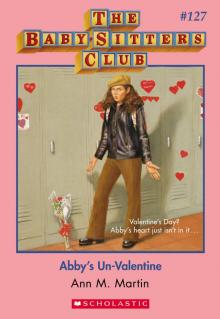 Abby's Un-Valentine
Abby's Un-Valentine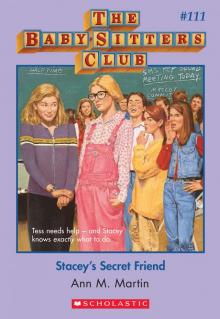 Stacey's Secret Friend
Stacey's Secret Friend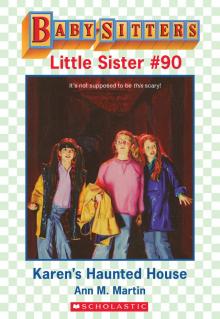 Karen's Haunted House
Karen's Haunted House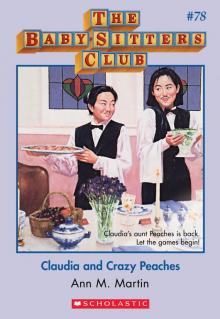 Claudia and Crazy Peaches
Claudia and Crazy Peaches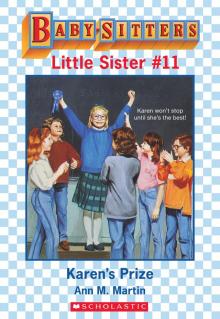 Karen's Prize
Karen's Prize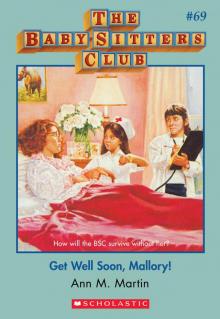 Get Well Soon, Mallory!
Get Well Soon, Mallory!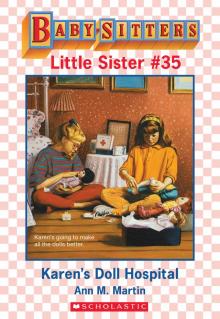 Karen's Doll Hospital
Karen's Doll Hospital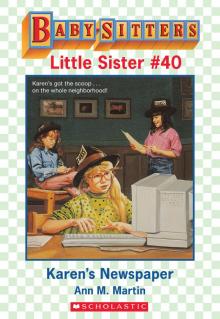 Karen's Newspaper
Karen's Newspaper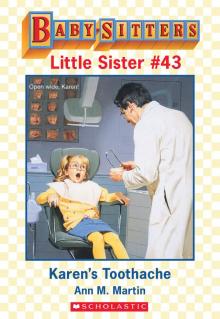 Karen's Toothache
Karen's Toothache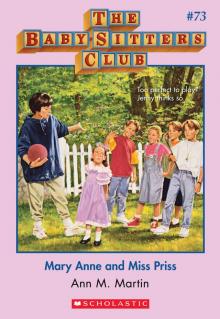 Mary Anne and Miss Priss
Mary Anne and Miss Priss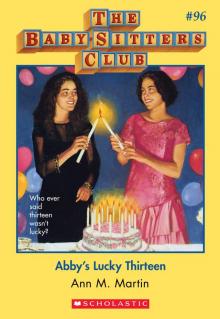 Abby's Lucky Thirteen
Abby's Lucky Thirteen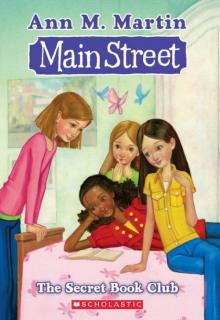 The Secret Book Club
The Secret Book Club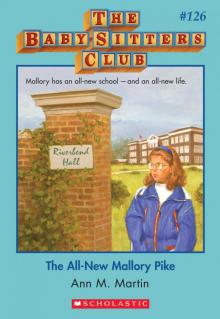 The All-New Mallory Pike
The All-New Mallory Pike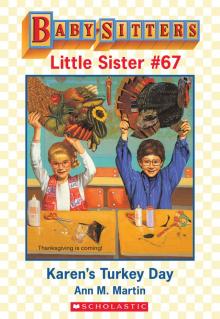 Karen's Turkey Day
Karen's Turkey Day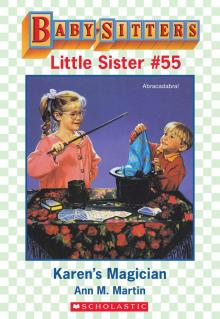 Karen's Magician
Karen's Magician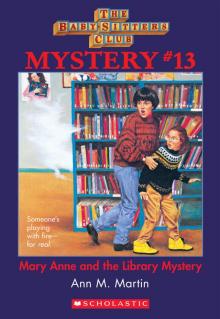 Mary Anne and the Library Mystery
Mary Anne and the Library Mystery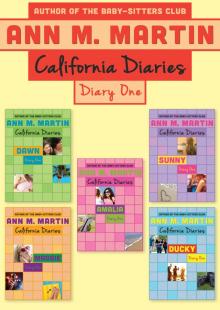 Diary One: Dawn, Sunny, Maggie, Amalia, and Ducky
Diary One: Dawn, Sunny, Maggie, Amalia, and Ducky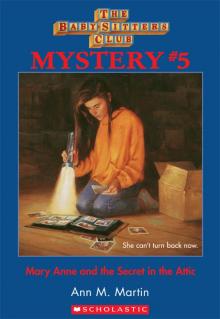 Mary Anne and the Secret in the Attic
Mary Anne and the Secret in the Attic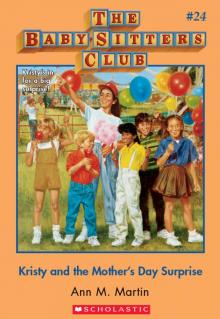 Kristy and the Mother's Day Surprise
Kristy and the Mother's Day Surprise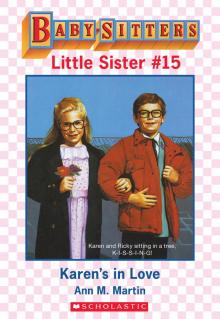 Karen's in Love
Karen's in Love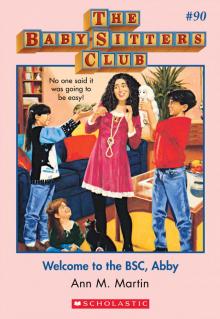 Welcome to the BSC, Abby
Welcome to the BSC, Abby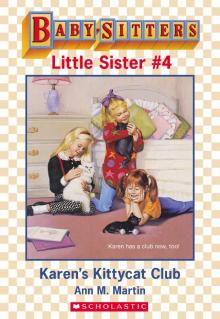 Karen's Kittycat Club
Karen's Kittycat Club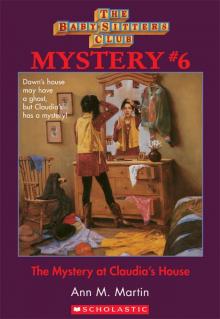 The Mystery at Claudia's House
The Mystery at Claudia's House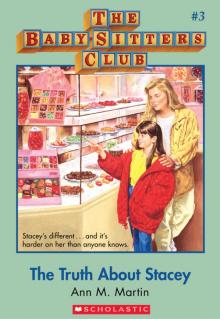 The Truth About Stacey
The Truth About Stacey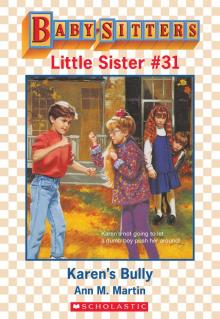 Karen's Bully
Karen's Bully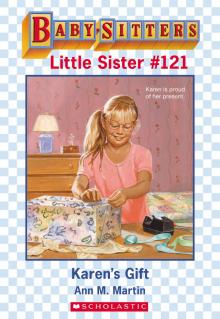 Karen's Gift
Karen's Gift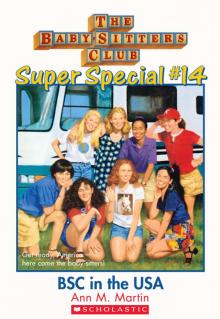 BSC in the USA
BSC in the USA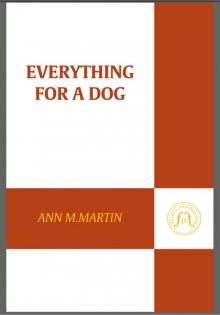 Everything for a Dog
Everything for a Dog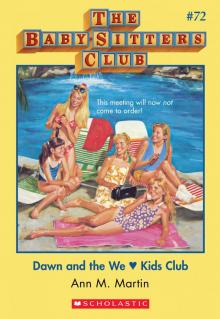 Dawn and the We Love Kids Club
Dawn and the We Love Kids Club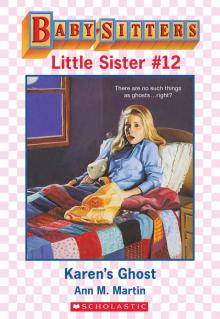 Karen's Ghost
Karen's Ghost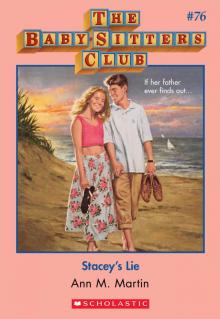 Stacey's Lie
Stacey's Lie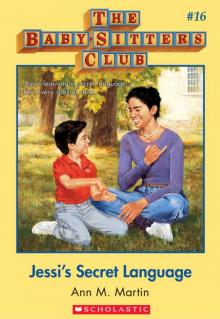 Jessi's Secret Language
Jessi's Secret Language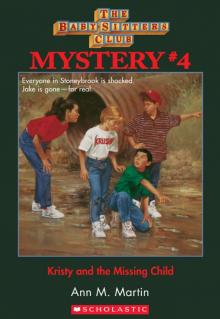 Kristy and the Missing Child
Kristy and the Missing Child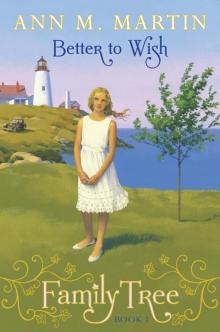 Better to Wish
Better to Wish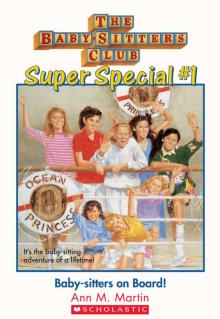 Baby-Sitters on Board!
Baby-Sitters on Board!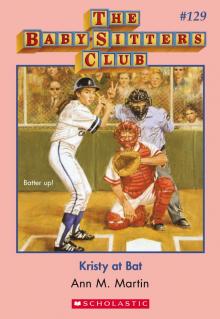 Kristy at Bat
Kristy at Bat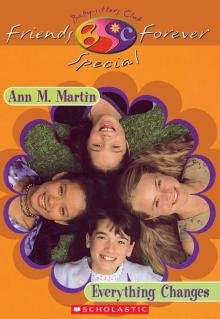 Everything Changes
Everything Changes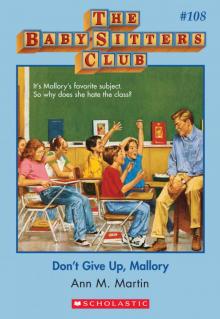 Don't Give Up, Mallory
Don't Give Up, Mallory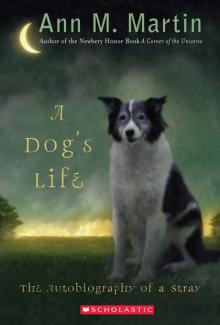 A Dog's Life: The Autobiography of a Stray
A Dog's Life: The Autobiography of a Stray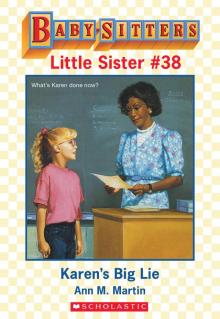 Karen's Big Lie
Karen's Big Lie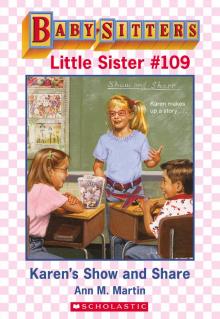 Karen's Show and Share
Karen's Show and Share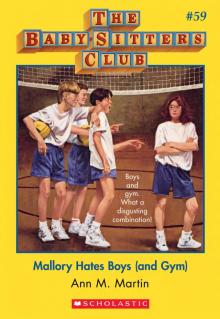 Mallory Hates Boys (and Gym)
Mallory Hates Boys (and Gym)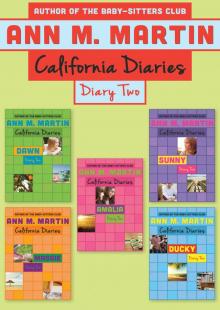 Diary Two: Dawn, Sunny, Maggie, Amalia, and Ducky
Diary Two: Dawn, Sunny, Maggie, Amalia, and Ducky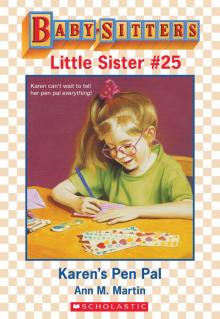 Karen's Pen Pal
Karen's Pen Pal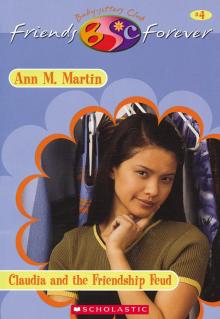 Claudia and the Friendship Feud
Claudia and the Friendship Feud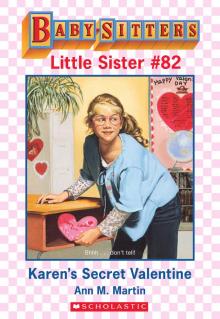 Karen's Secret Valentine
Karen's Secret Valentine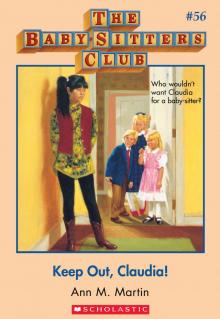 Keep Out, Claudia!
Keep Out, Claudia!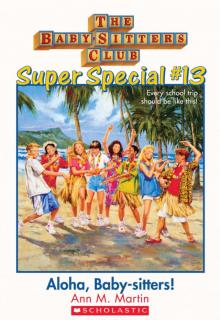 Aloha, Baby-Sitters!
Aloha, Baby-Sitters!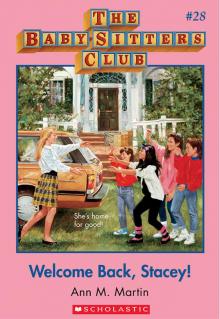 Welcome Back, Stacey
Welcome Back, Stacey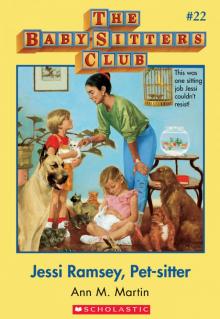 Jessi Ramsey, Pet-Sitter
Jessi Ramsey, Pet-Sitter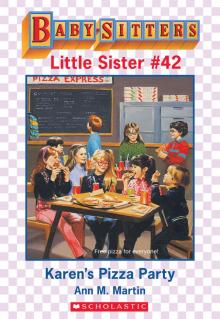 Karen's Pizza Party
Karen's Pizza Party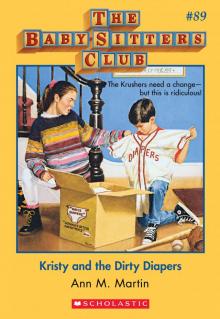 Kristy and the Dirty Diapers
Kristy and the Dirty Diapers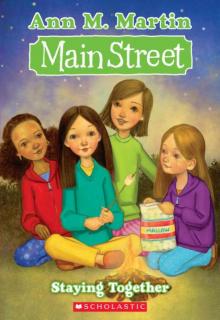 Staying Together
Staying Together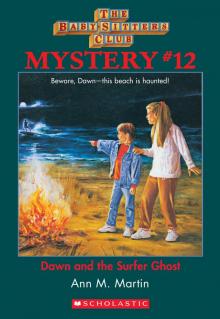 Dawn and the Surfer Ghost
Dawn and the Surfer Ghost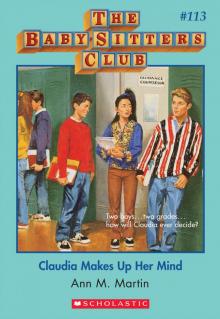 Claudia Makes Up Her Mind
Claudia Makes Up Her Mind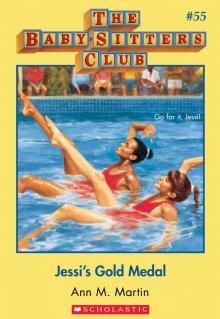 Jessi's Gold Medal
Jessi's Gold Medal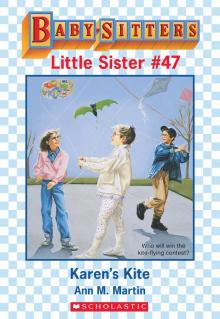 Karen's Kite
Karen's Kite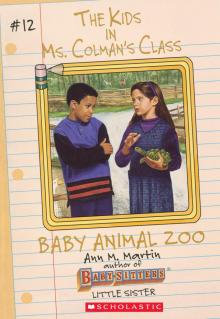 Baby Animal Zoo
Baby Animal Zoo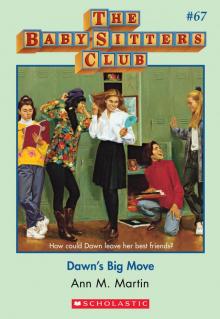 Dawn's Big Move
Dawn's Big Move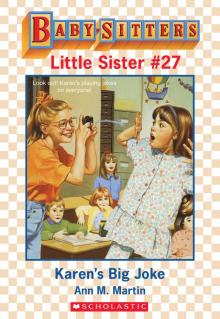 Karen's Big Joke
Karen's Big Joke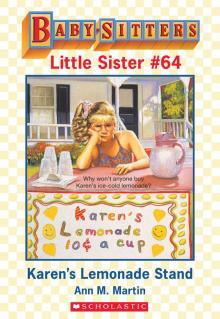 Karen's Lemonade Stand
Karen's Lemonade Stand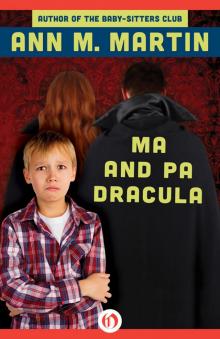 Ma and Pa Dracula
Ma and Pa Dracula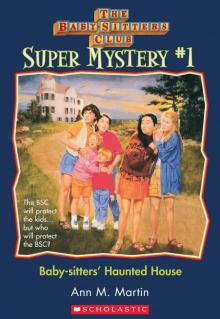 Baby-Sitters' Haunted House
Baby-Sitters' Haunted House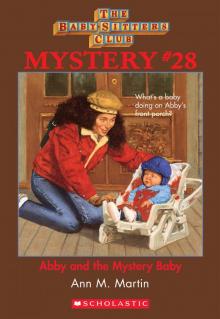 Abby and the Mystery Baby
Abby and the Mystery Baby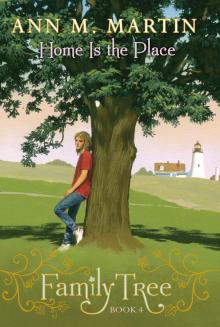 Home Is the Place
Home Is the Place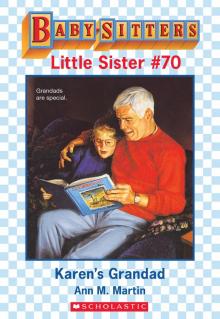 Karen's Grandad
Karen's Grandad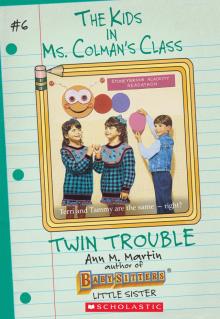 Twin Trouble
Twin Trouble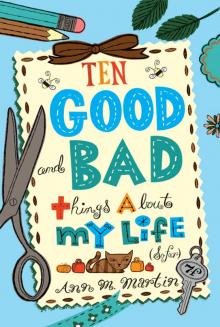 Ten Good and Bad Things About My Life (So Far)
Ten Good and Bad Things About My Life (So Far)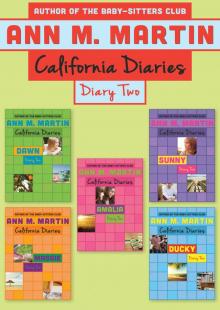 Diary Two
Diary Two Baby-Sitters Club 027
Baby-Sitters Club 027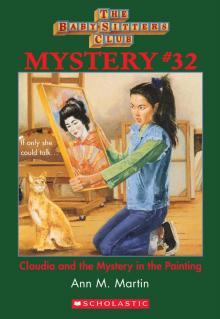 Claudia and the Mystery Painting
Claudia and the Mystery Painting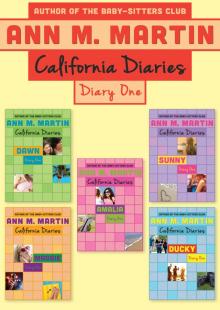 Diary One
Diary One Baby-Sitters Club 037
Baby-Sitters Club 037 Baby-Sitters Club 028
Baby-Sitters Club 028 Baby-Sitters Club 085
Baby-Sitters Club 085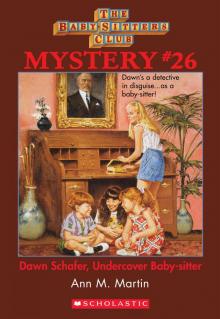 Dawn Schaffer Undercover Baby-Sitter
Dawn Schaffer Undercover Baby-Sitter Jessi's Babysitter
Jessi's Babysitter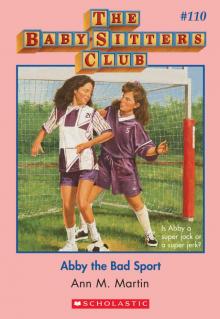 The Baby-Sitters Club #110: Abby the Bad Sport (Baby-Sitters Club, The)
The Baby-Sitters Club #110: Abby the Bad Sport (Baby-Sitters Club, The) Karen's Little Sister
Karen's Little Sister Baby-Sitters Club 058
Baby-Sitters Club 058 Claudia And The Genius On Elm St.
Claudia And The Genius On Elm St.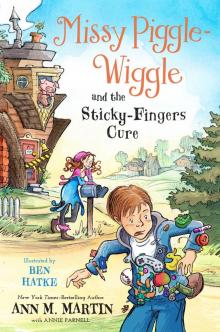 Missy Piggle-Wiggle and the Sticky-Fingers Cure
Missy Piggle-Wiggle and the Sticky-Fingers Cure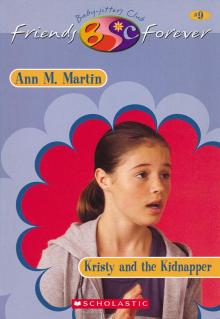 Kristy and Kidnapper
Kristy and Kidnapper Baby-Sitters Club 041
Baby-Sitters Club 041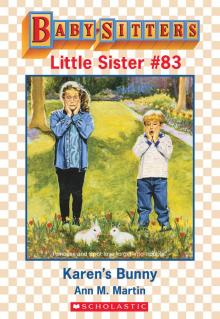 Karen's Bunny Trouble
Karen's Bunny Trouble Baby-Sitters Club 032
Baby-Sitters Club 032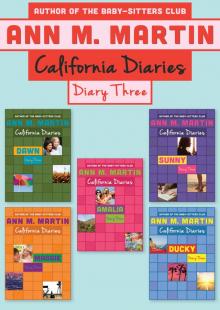 Diary Three
Diary Three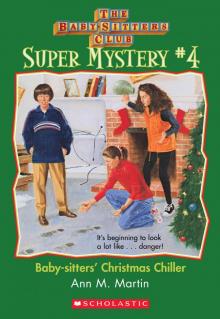 Christmas Chiller
Christmas Chiller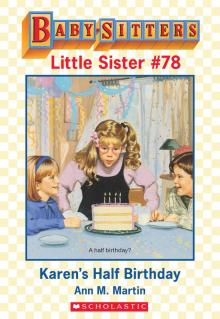 Karen's Half-Birthday
Karen's Half-Birthday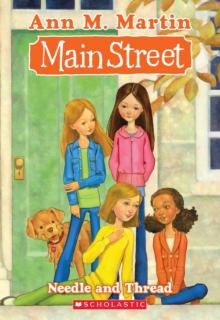 Needle and Thread
Needle and Thread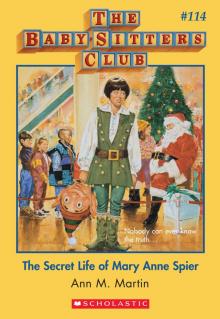 Secret Life of Mary Anne Spier
Secret Life of Mary Anne Spier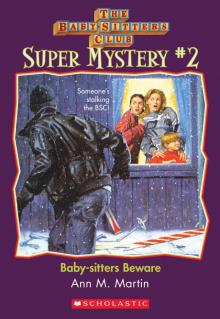 Baby-Sitters Beware
Baby-Sitters Beware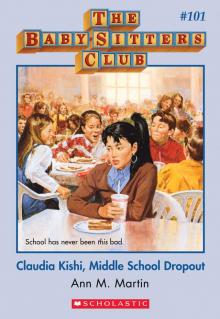 Claudia Kishi, Middle School Drop-Out
Claudia Kishi, Middle School Drop-Out Logan Likes Mary Anne !
Logan Likes Mary Anne ! Baby-Sitters Club 061
Baby-Sitters Club 061 Best Friends
Best Friends Baby-Sitters Club 031
Baby-Sitters Club 031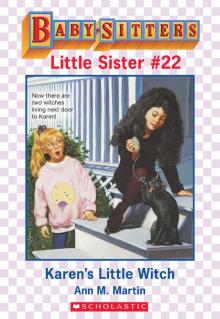 Karen's Little Witch
Karen's Little Witch Jessi Ramsey, Petsitter
Jessi Ramsey, Petsitter Baby-Sitters Club 123
Baby-Sitters Club 123 Baby-Sitters Club 059
Baby-Sitters Club 059 Baby-Sitters Club 033
Baby-Sitters Club 033 Baby-Sitters Club 060
Baby-Sitters Club 060 Baby-Sitters Club 094
Baby-Sitters Club 094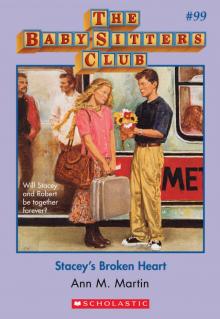 The Baby-Sitters Club #99: Stacey's Broken Heart
The Baby-Sitters Club #99: Stacey's Broken Heart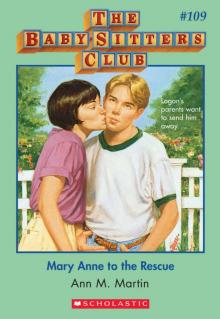 The Baby-Sitters Club #109: Mary Anne to the Rescue (Baby-Sitters Club, The)
The Baby-Sitters Club #109: Mary Anne to the Rescue (Baby-Sitters Club, The) Mystery At Claudia's House
Mystery At Claudia's House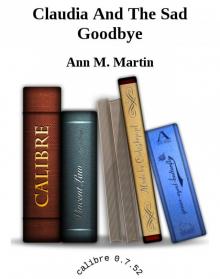 Claudia And The Sad Goodbye
Claudia And The Sad Goodbye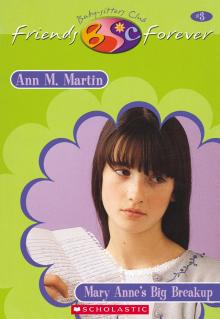 Mary Anne's Big Break-Up
Mary Anne's Big Break-Up Baby-Sitters Club 025
Baby-Sitters Club 025 Baby-Sitters Club 042
Baby-Sitters Club 042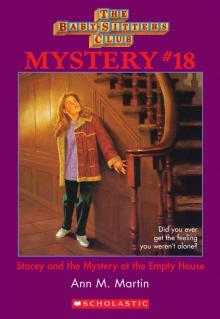 Stacey and the Mystery of the Empty House
Stacey and the Mystery of the Empty House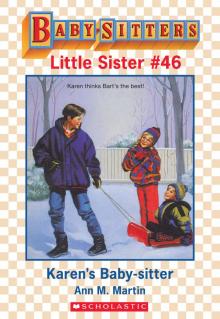 Karen's Baby-Sitter
Karen's Baby-Sitter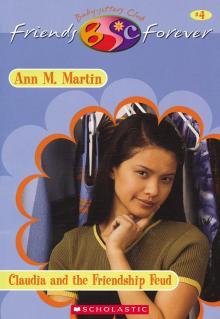 Claudia's Friendship Feud
Claudia's Friendship Feud Baby-Sitters Club 090
Baby-Sitters Club 090 Baby-Sitters Club 021
Baby-Sitters Club 021 Baby-Sitters Club 056
Baby-Sitters Club 056 Baby-Sitters Club 040
Baby-Sitters Club 040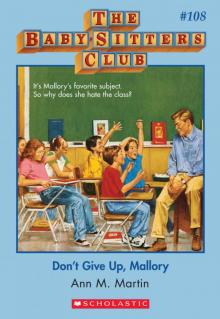 The Baby-Sitters Club #108: Don't Give Up, Mallory (Baby-Sitters Club, The)
The Baby-Sitters Club #108: Don't Give Up, Mallory (Baby-Sitters Club, The)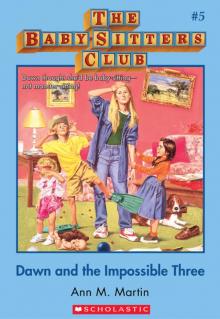 Dawn and the Impossible Three
Dawn and the Impossible Three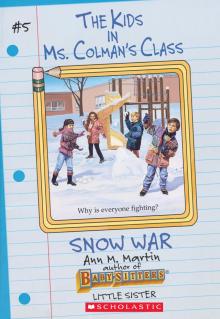 The Snow War
The Snow War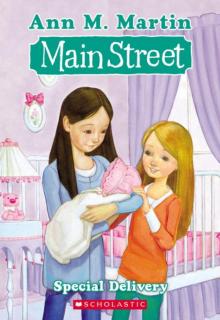 Special Delivery
Special Delivery Baby-Sitters Club 057
Baby-Sitters Club 057 Mary Anne And Too Many Babies
Mary Anne And Too Many Babies Baby-Sitters Club 030
Baby-Sitters Club 030